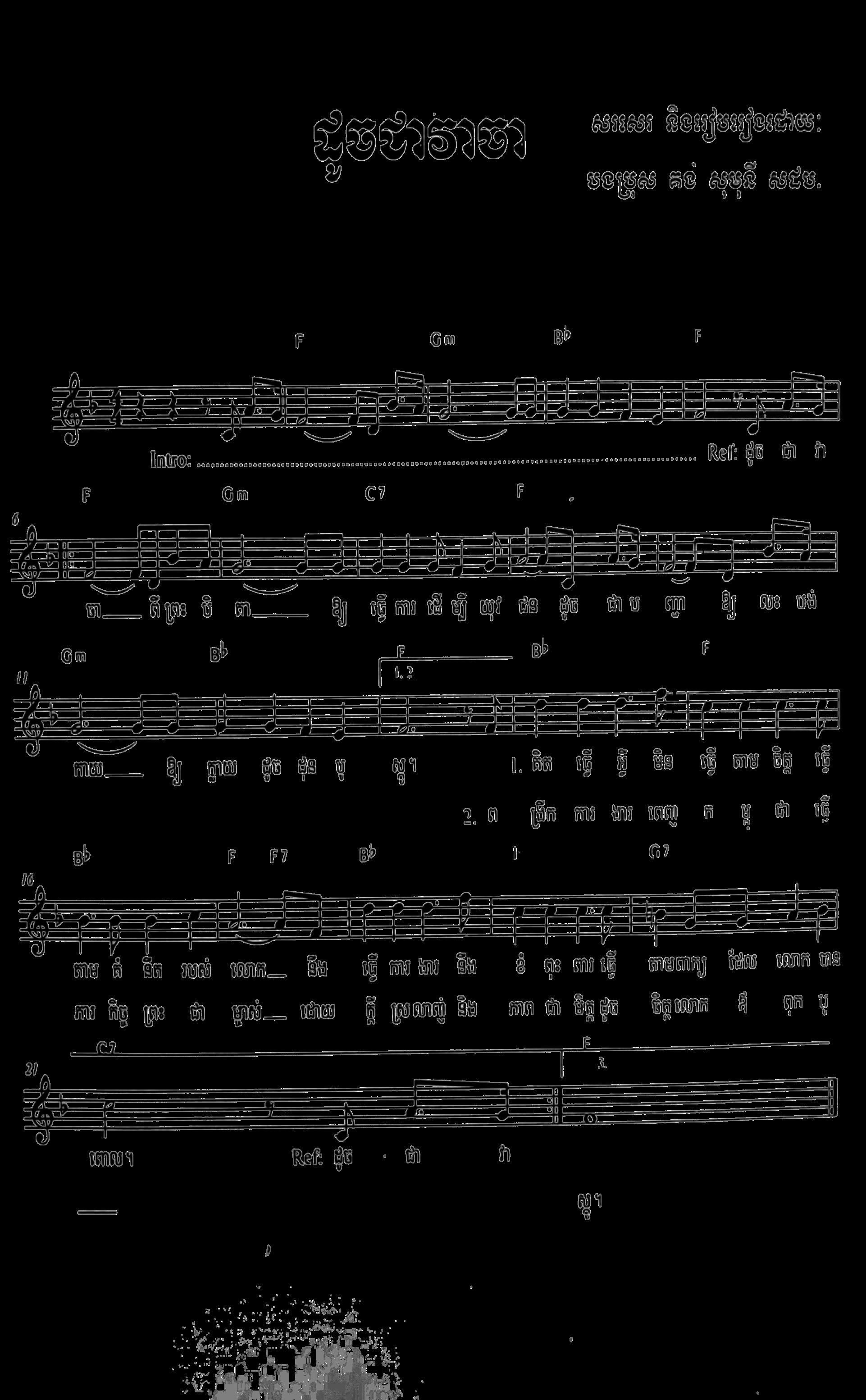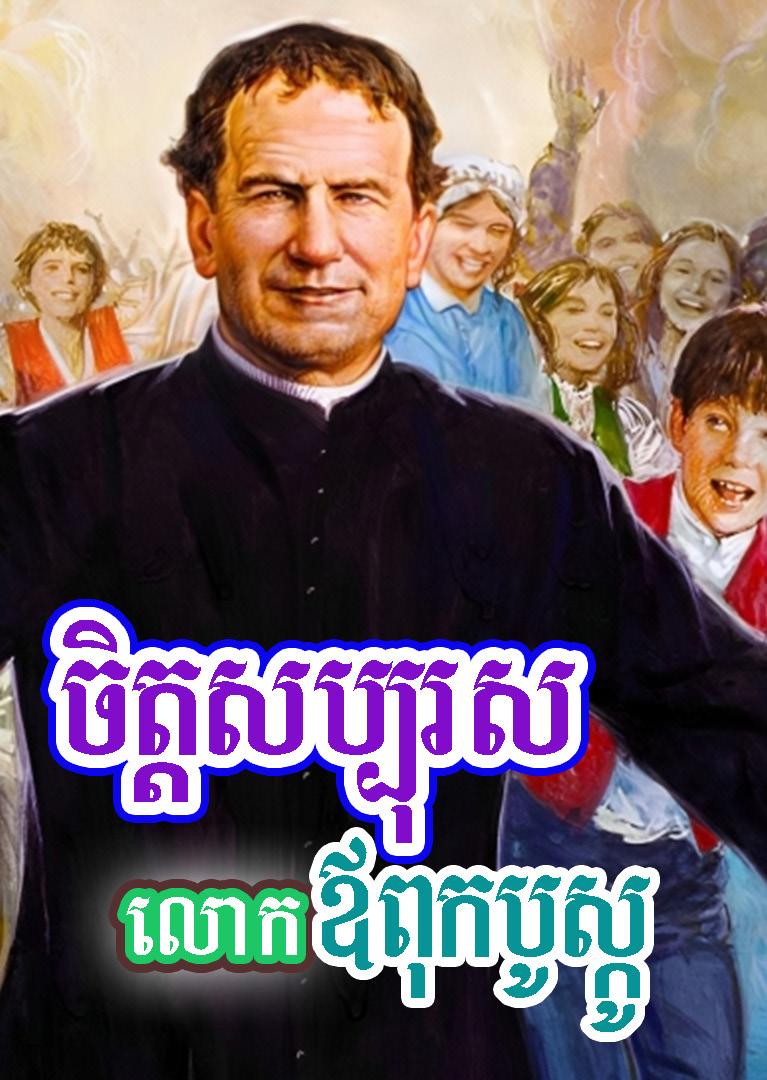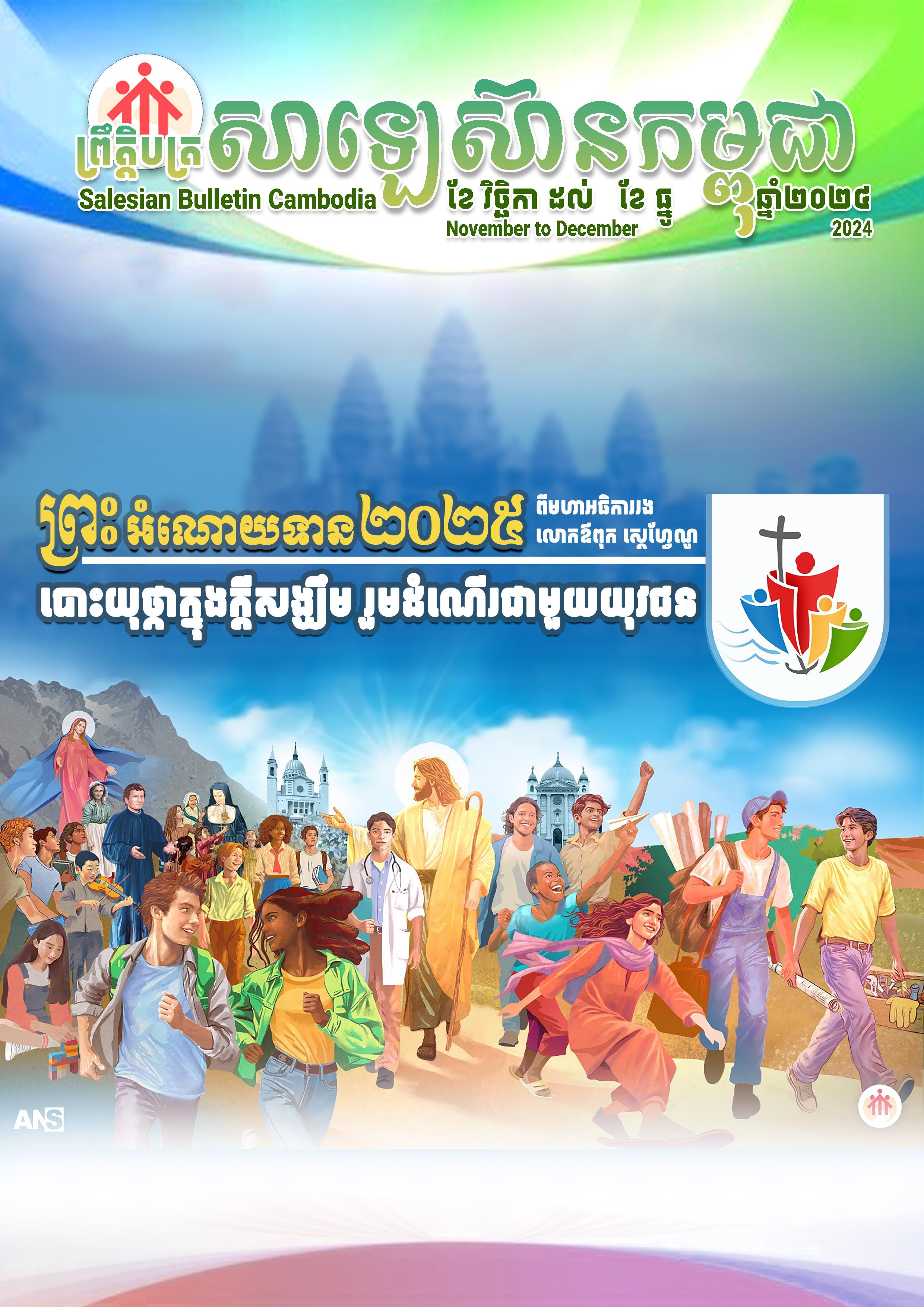

កម្ពុជា

ឡេ�ើដុឡេ�រឡេ�ភាគខាងឡេជងនៃន៍ប្រុបូឡេ�សកមជា

SALESIAN BULLETIN
KHMER
“
THE TIME HAS COME FOR A NEW JUBILEE IN WHICH THE HOLY DOOR WILL ONCE AGAIN BE WIDE OPEN TO OFFER THE LIVING EXPERIENCE OF GOD’S LOVE THAT AWAKENS IN THE HEART THE CERTAIN HOPE OF SALVATION IN CHRIST.”
Pope Francis (Spes non
confundit).
Dear friends, as we are in the ordinary Jubilee year; the central theme of Jubilee year is Hope that Pope Francis proclaimed in his letter to the faithful readers. Our Strenna 2025 is based on the theme of Jubilee year “Anchored in hope, pilgrims with young people”. We are invited to reflect and deepen our trust in the divine grace that is implanted in our heart is HOPE. For all of us the Jubilee year is a great occasion during which every pilgrim can encounter and experience the infinite mercy and love of God. In the heart of each one of us, hope dwells as the desire and expectation of good things to come, even though we don’t know what the future holds for us. In the time of despair, distress and uncertainty about our future, there exists a tiny ray of light and that is HOPE which guides us for a better tomorrow. And I am sure of the passage of St. Paul that “Hope does not disappoint, because God’s love has been poured into our hearts through the Holy Spirit that has been given to us” (Rom 5:1-2.5). I would like that we become a ray of HOPE for the young on their journey towards a better future. There is nothing that can bring us joy, peace and happiness but to renew our hope in the blessings of God. If we put our trust in the infinite mercy of God, our hope renews and gives us strength to become the ray of hope for the young people who are entrusted to our care. The people lose their faith and trust in God because they encounter something unpleasant experiences, even in the time of suffering and struggle there exists so called hope which can become their strength to move forward.
Let each one of us put our trust and strengthen our hope in the infinite love and mercy of God, so that our journey with young becomes meaningful and fruitful. We need to discover the love of God and share with others, who are suffering and not finding meaning in life. Because there exists an infinite mercy and grace of God deep in our heart… let this new year, a year of ordinary Jubilee become our guiding ray to discover our Hope and trust in the loving mercy of God Day by day for a better future of tomorrow.
Thank you
Fr. Eugene Xalxo


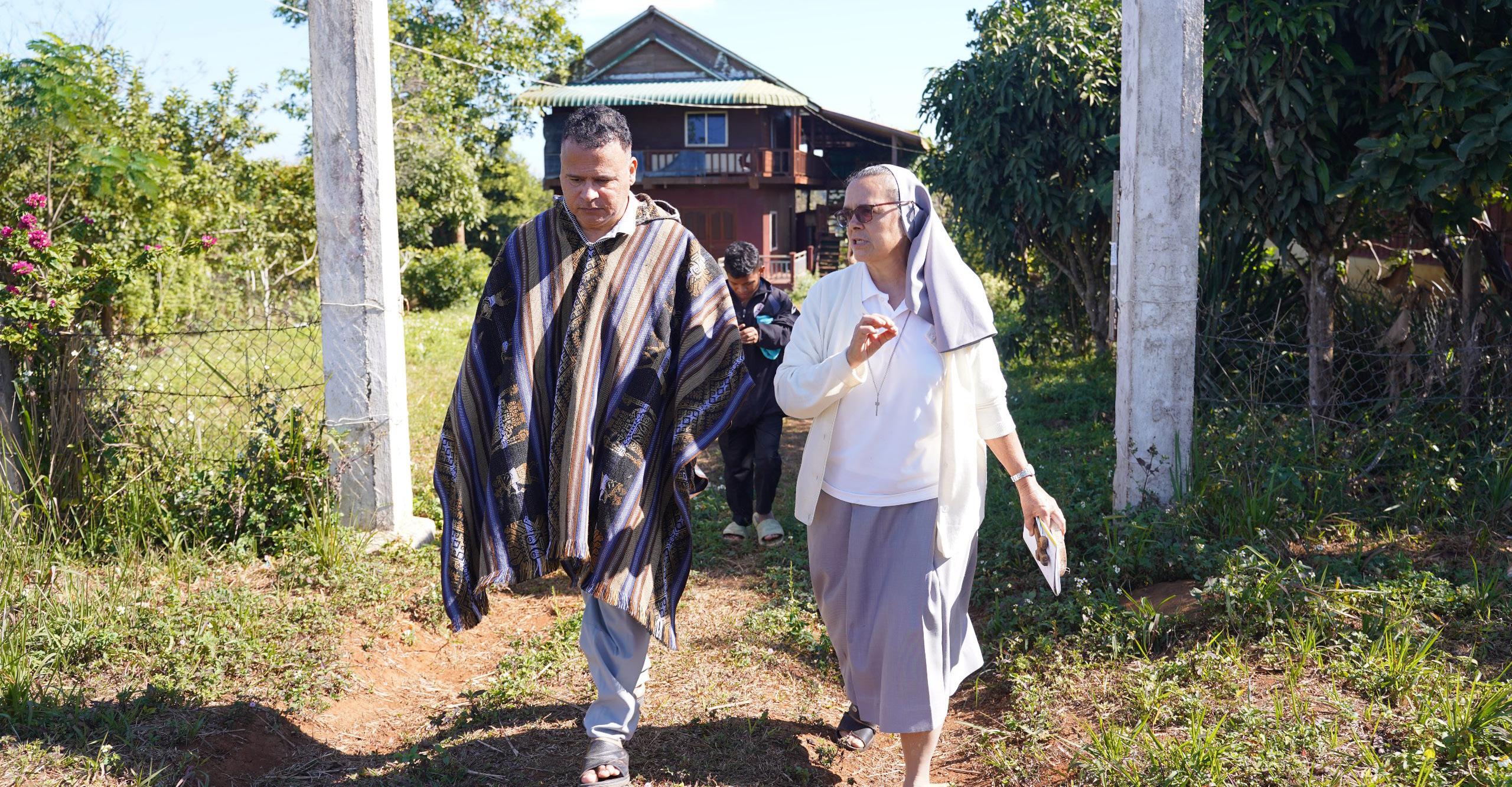

ការសកា ន៍ងបូឡេងូន៍បូញ្ចាំឡេ�ិងៗសប្រុមាបូឡេសដុាកចំឡេខិាយ ៗរបូសប្រុកុមប្រុគួសារ។
ដាស) �ន៍ឡេ�ើដុឡេ�រឡេ�ខាងឡេជងនៃន៍កមជា
The Don Bosco Brother Sun Scholarship Program for Rural and Indigenous Children and Youth of Cambodia, based at Don Bosco Kep, intends to reach the most remote villages of the kingdom to guarantee that children and youth do not abandon school, a tendency that has been increasing with the use of cell phones and the Internet, affecting children, specially boys, that lost the interest in studies, creating even more situations for the fragile economies of their family.
Every year Fr. Samnang Albeiro Rodas paid a visit to the north of Cambodia to visit the villages where children are being supported by the program. This year, he was accompanied by teacher Gnil Vy, coordinator of the agro-vocational program of Don Bosco Kep and three Indigenous students from Information Technology and Media Communication: Mr. Lvan and Mr. Dom, Jarai from Ratanakiri and Mr. Lay, Kuy from Preah Vehear. The journey took 1,500 km around the north of Cambodia: From Kep to Mondolkiri, Ratanakiri, Preah Vehear and Oddar Meanchey.
Don Bosco Brother Sun Indigenous Children Journey to the North of Cambodia
Salesian Sisters (FMA),

In Mondolkiri they visited the Catholic community of Fr. Juan Solorzano in Kaev Seima of the Bunong People, where there is a church under construction and a dynamic community around the service to the Indigenous families. They visited also the Salesian Sisters (FMA), Sr. Dory Helena and Sr. Liza in Sen Monorom city.
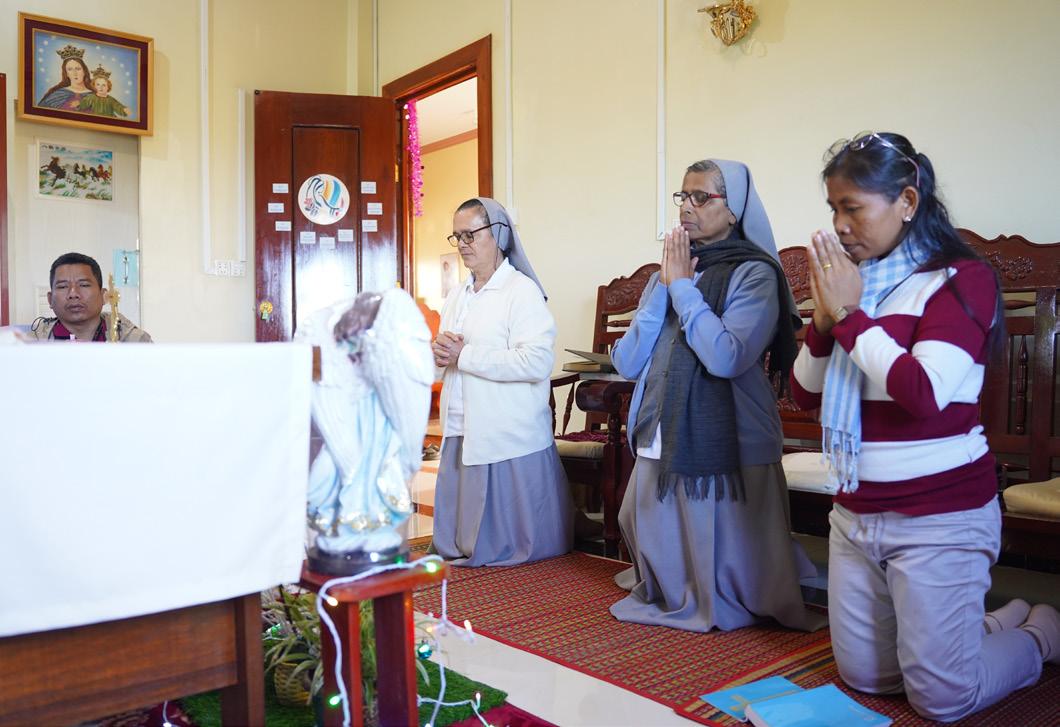
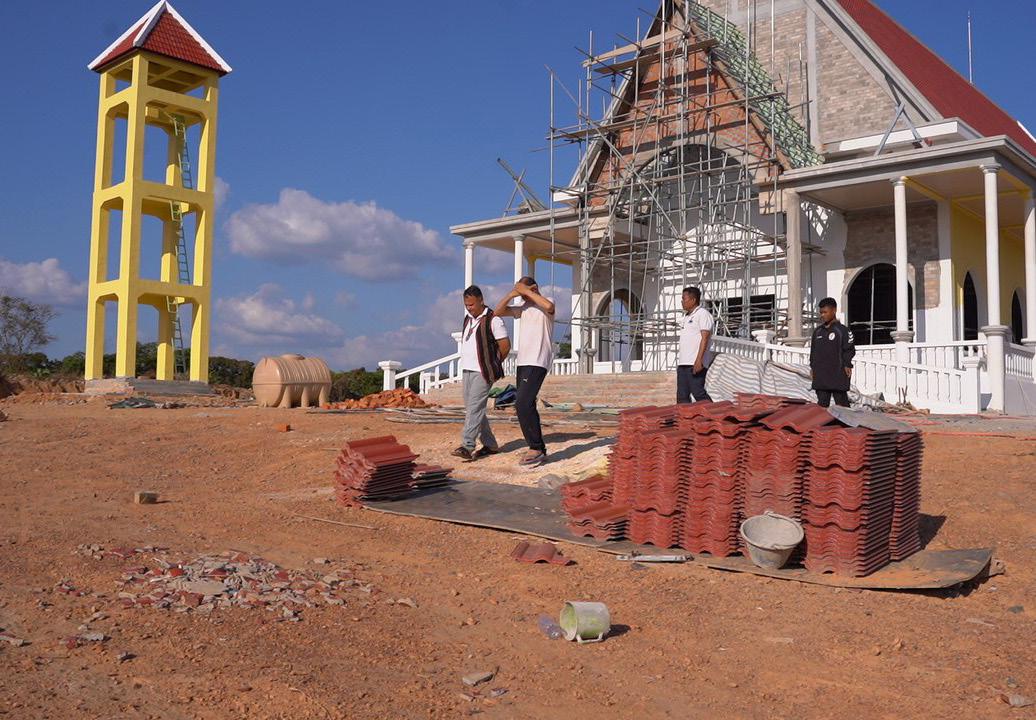
Catholic community In Mondolkiri
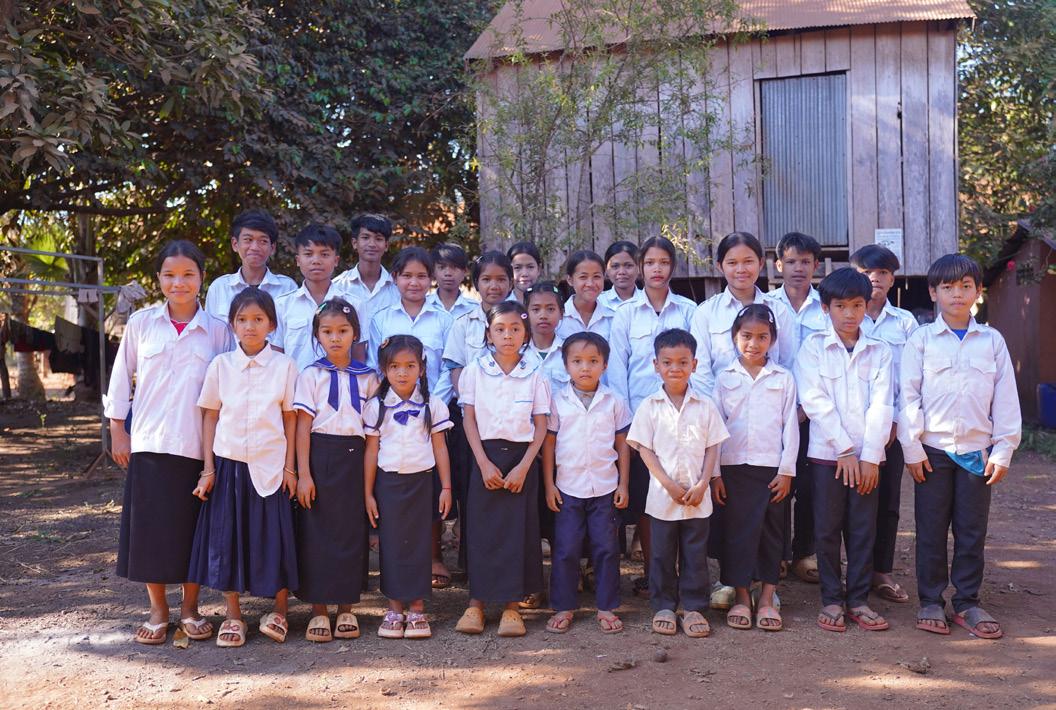
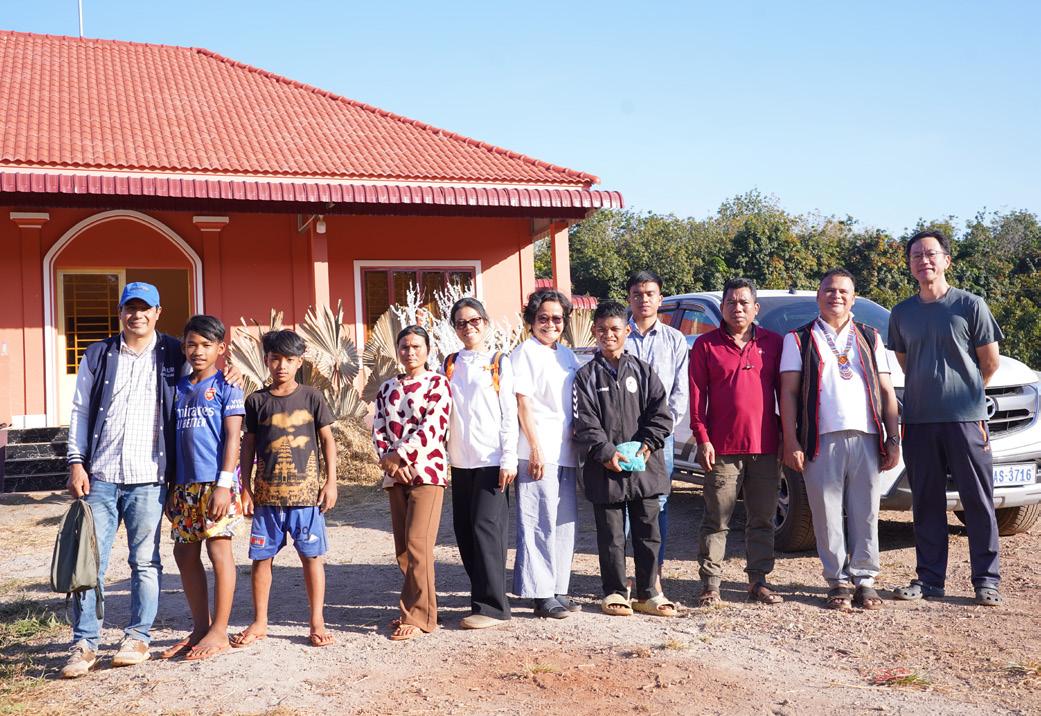
Chrung village in Ratanakiri
In Ratanakiri, they went to the districts of Bokeo and O’Yadao of Jarai communities and promoted the Don Bosco Kep Technical School at the O’Yadao High School with 12th grade students, mostly Jarai and Tampuong. Fr. Ivan Campana, the leader of the Catholic Church in Ratanakiri, presented also the project of a kindergarten at the Chrung Jarai village, where Indigenous children will have a space of education and recreation.
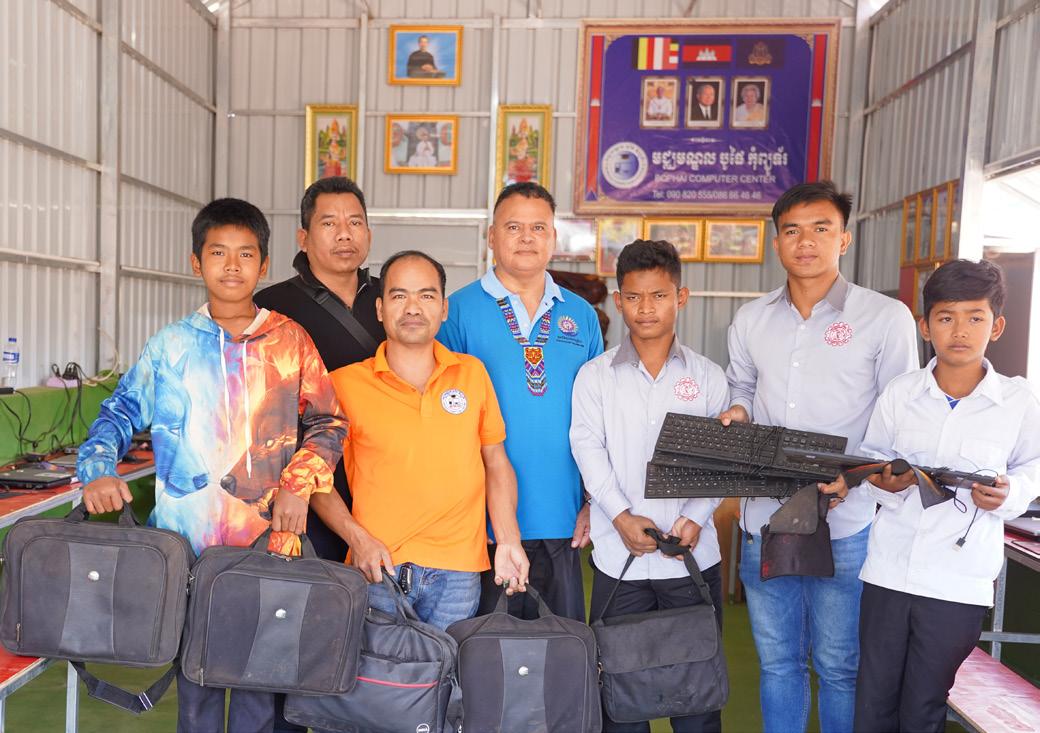
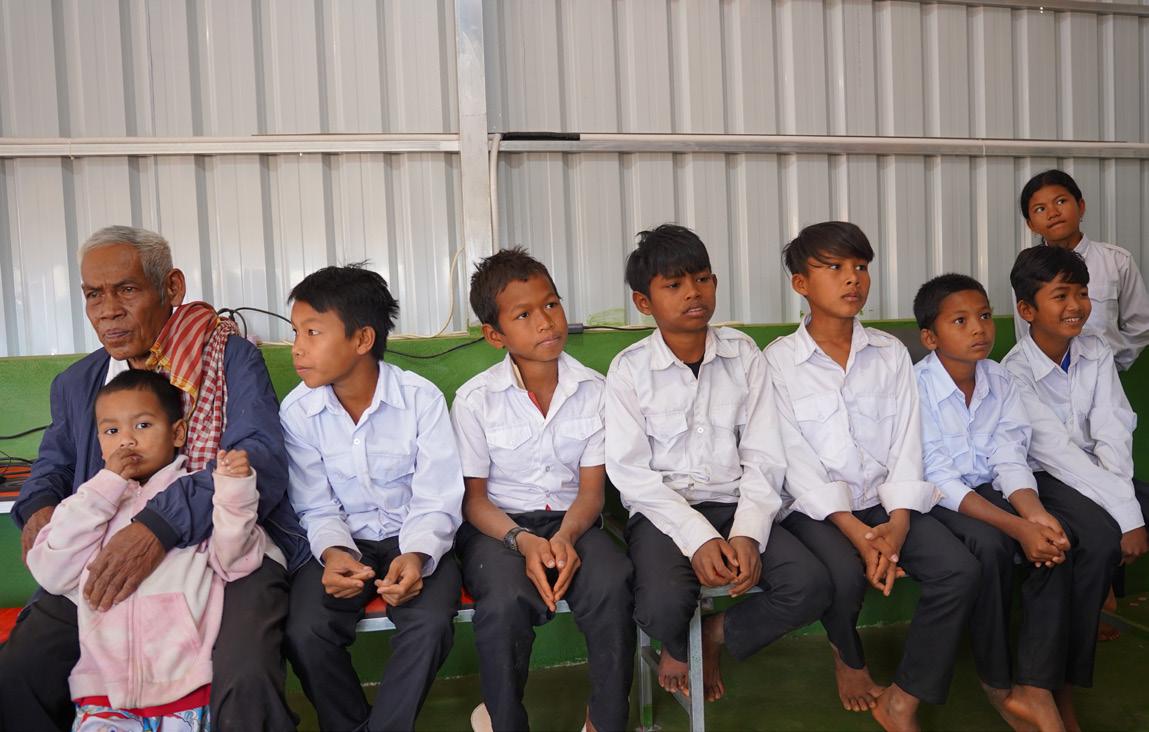
ប្រុ�សា�នៃន៍ឧតីរមាន៍ជ័យ
បូ�នៃបូ
ឡេដាយមាន៍ការ�ប្រុ�ពីអំំកអំន៍�ឡេប្រុ�ះមួយ ចន៍ន៍

កំងដុឡេ�រការ�ន៍សឡេងូតឡេឃុំញភាពីឌឺងឡេដាងនៃន៍បូញ្ចាំ
ញបូរសាន៍ឡេដាយការឡេឆ្លុះះនៃប្រុពីឥតខាៃ ចចាបូ
ប្រុពីំដែដុន៍ឡេសដុាកចំកសកមា
ឡេរៀបូចំ។ ការឡេឆ្លុះះដែដុលិបូឡេងូន៍ពីពីកដែ�ិងយាាងឡេប្រុចន៍ឡេ�
ឡេលិ�ៃេ
ដែដុលិបូងូ�លិបូាះពាលិដុលិស�ខិភាពី
បូឡេងូតសាន៍ភាពីឡេ�តខាៃំង។
បូញ្ចាំប្រុបូសបូឡេ�ិងឡេ�ៀតដែដុលិ �ន៍ជបូឡេ�ភមជន៍ជាតឡេដុមភាគតច គបូញ្ចាំសសិេយឡេកាង
បូ�រសឡេ�ះបូង់សា �
In Preah Vehear they visited a a Kuy Indigenous communities at the Chok Chey village. Finally, they arrived to the Tromphea Prasat District of Oddar Meanchey, to the Bophai Computer Centre, where former Don Bosco Kep IT teacher, Mr. Bophai, leads a program of complementary education for local children, with the support of some benefactors, including Don Bosco Brother Sun Program.
Along the way it was possible to see the sad reality of environment degradation with indiscriminate burning of forests to extend the agricultural and plantation frontier, without regulations. Burnings that generate a large amount of smoke on the roads and in the towns, so harmful to public health, while destroying the environment, reducing rainfall and preparing for a greater heat wave. Another factual problem that was possible to see in the Indigenous villages is the situation of male teenagers abandoning the school, attracted by the Internet addiction and becoming vulnerable to many situations. In these cases, it is important to continue the Don Bosco mission to provide education, training and formation to the new generations, but also to their families, to prevent future problems.

Trampea Prasat District in Oddar Meanchey

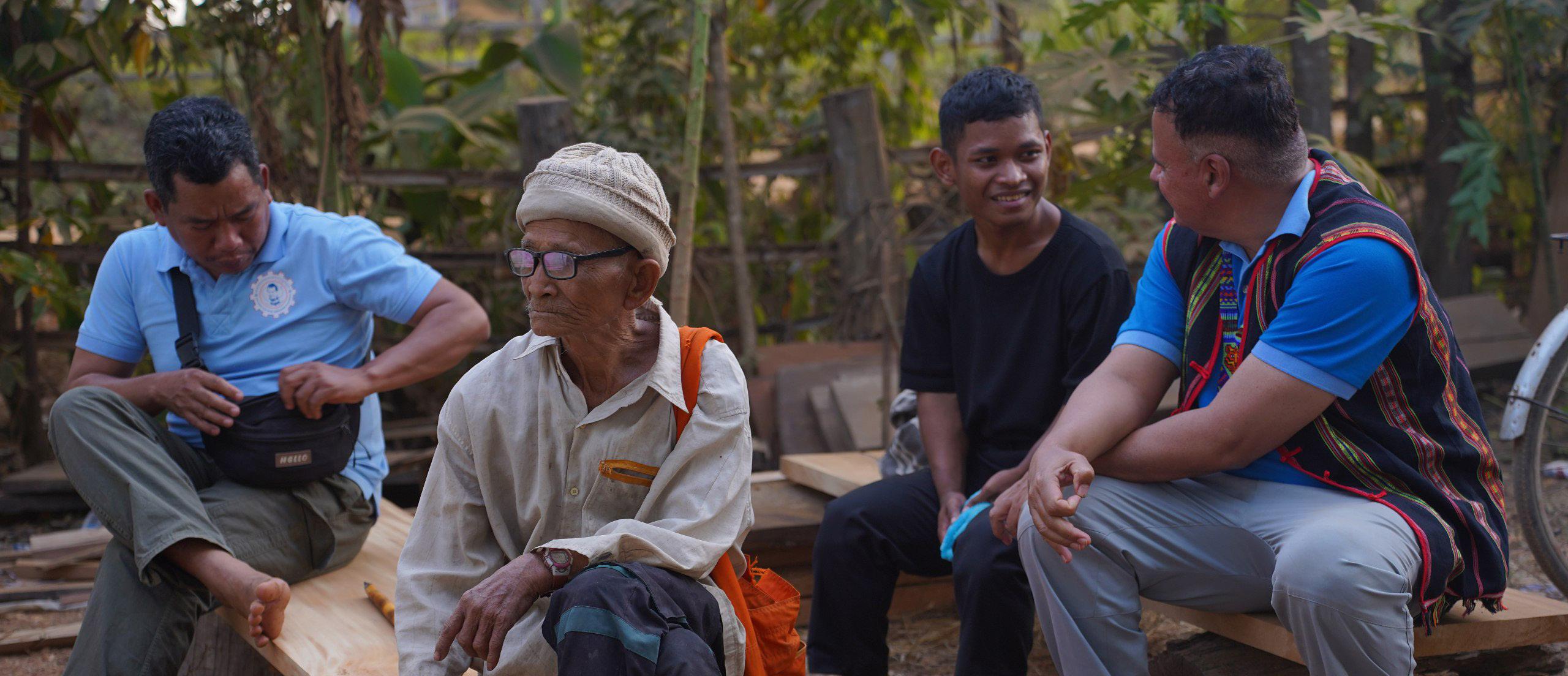
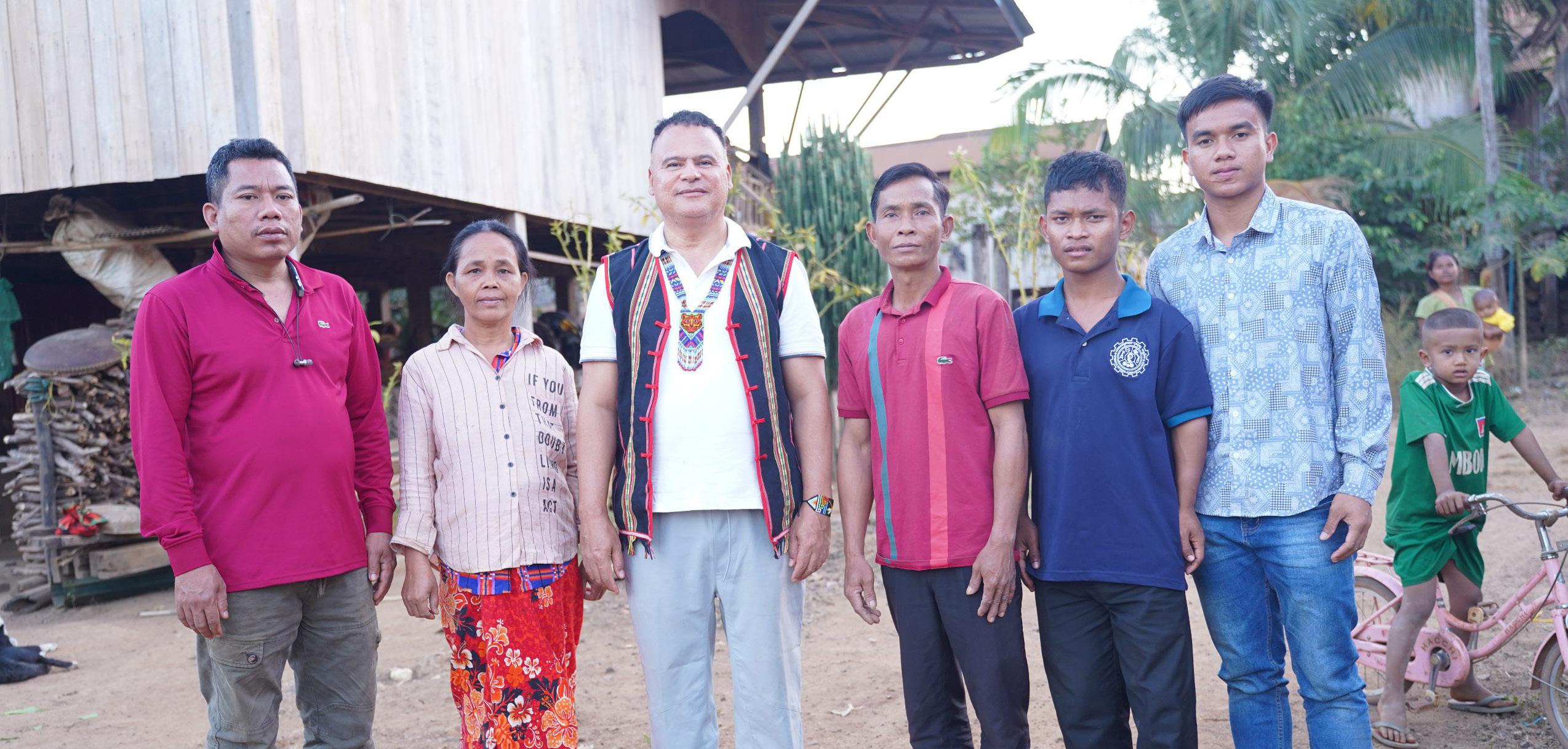
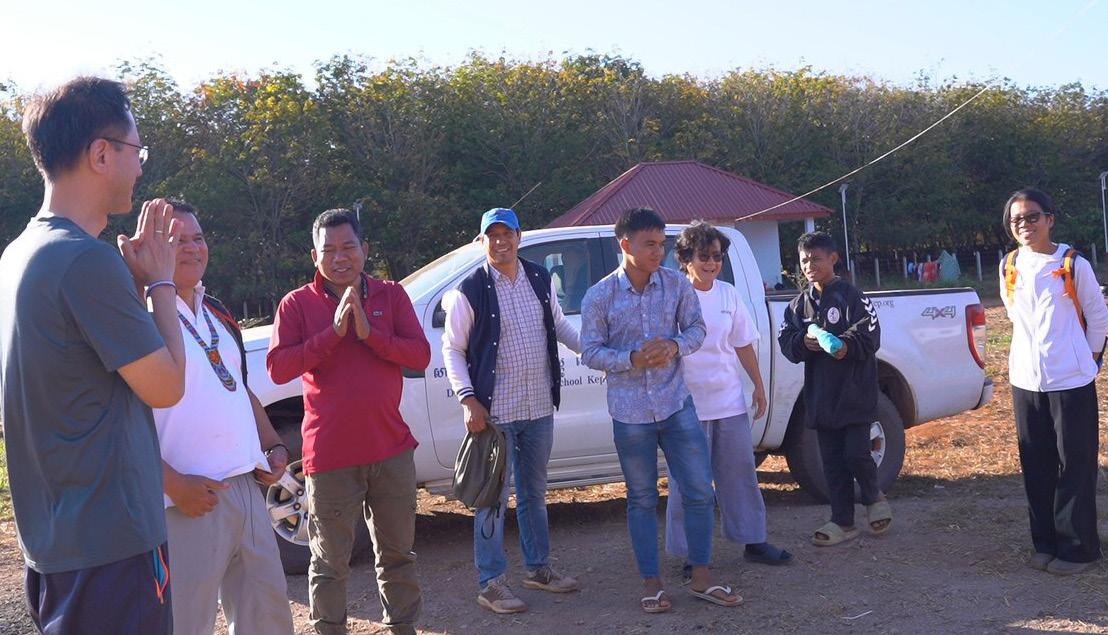
Church led by Fr Ivan Campana
Kuy village, Preah Vehear Province.
Jarai village of Saen Thom, O’Yadao District, Ratanakiri Province
Salesians at the Asian Forum 2024
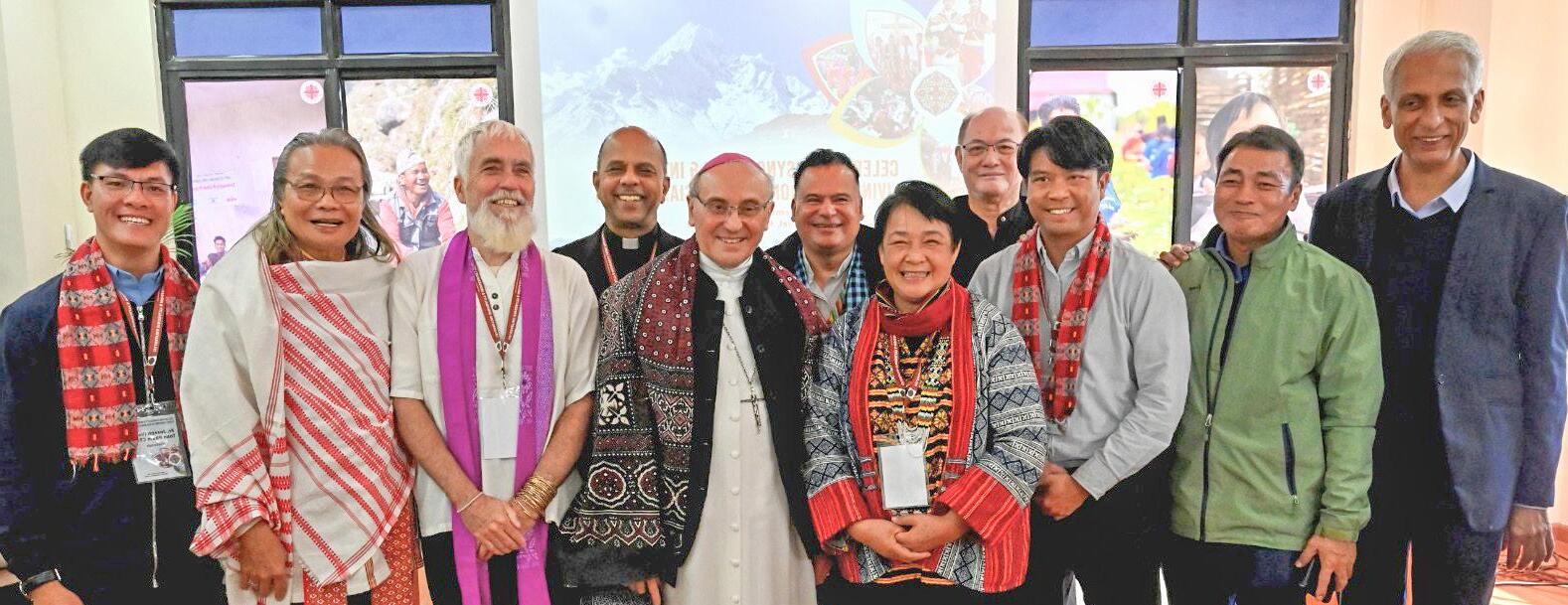

ឡេដុមភាគតចឡេ�អាស (NMAIPA)
សាគលិ់ថាជារងើង់នៃន៍អំងូរពីសដុា។ គ�ៈប្រុបូតភូមកពីប្រុបូឡេ�ស ចំន៍ន៍
៤០% នៃន៍
អំំកឡេសាាះប្រុតង់កាតូ លិកឡេលិពីភពីឡេ�កជាកមាស�ធរបូស់
Some members of the Asian Salesian Family participated in the Synodal Forum in Nepal to reflect on the presence of Indigenous Peoples in the Church in Asia. This event was organized by the Network of Ministries Among Indigenous Peoples in Asia (NMAIPA), formerly known as the Circle of the Sacred Rice. Delegates from 13 countries—Bangladesh, Cambodia, India, Indonesia, Malaysia, Myanmar, Nepal, Pakistan, Philippines, South Korea, Thailand, Timor Leste, and Vietnam—attended the forum. It is estimated that 40% of the world’s Catholic faithful belong to Indigenous Peoples. In Asia, this percentage is even higher, with 70% of Asian Catholics considered Indigenous or Tribal. Therefore, Pope Francis’s call to listen to Indigenous Peoples in the Synodal Church is of great importance to the Asian hierarchy.
ឡេដុមភាគតចយាាងដុូចឡេមីច?

Salesian Bishop George Palliparambil, the Bishop of Miao, India, was one of the lecturers at the forum, presenting on the topic “Tribal Genius: Superficially Seen but Still Unknown.” The missionary prelate, who has served as the chairman of the Indian NorthEast Regional Commission for Evangelization, posed thought-provoking questions: “How can the Church be truly indigenous? How can we reconcile this and think together about it?” He suggested that one idea was to ensure that all people feel the same, so no one feels different from others. However, he acknowledged the challenges of this approach, especially considering the current living conditions of Indigenous Peoples around the world.
ប្រុជាលិឡេប្រុ�ឡេ�ន៍ង�មាជាត។ មា�៌ របូសពីួកឡេគដែតងដែតភាបូឡេ�ន៍ងប្រុបូនៃពី�ដុន៍តា
“One of the temptations of modern societies is to dismantle traditional structures without understanding their deep meanings. For example, some societies are matrilineal and are among the most efficient. In these societies, the female head of the household is fully appreciated and loved, ensuring stability and a profound connection to nature. Their ways are always tied to ancestral traditions and the environment,” said Mgr. Palliparambil.

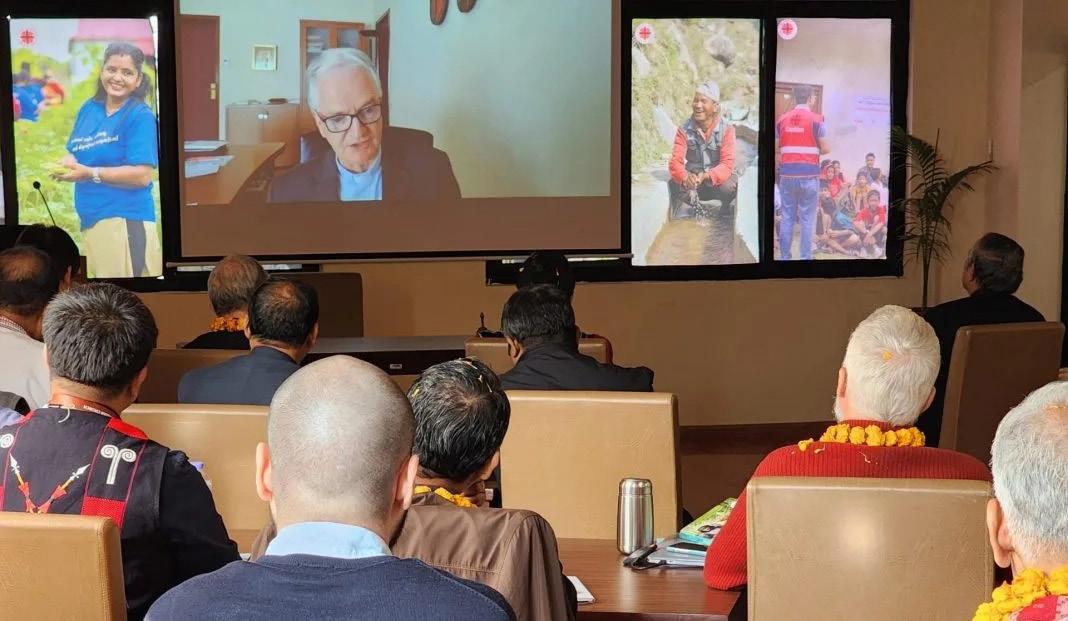

រ សប្រុមាបូឡេលិកកមុស់ការអំភេឌឺឍន៍៍មន៍�សិជាត
ឧបូករ�សំខាន៍ឡេ�កំងប្រុពីះេហារ
អំភ�លិ
ឡេដាយឡេលិកឡេ�ងពីប្រុបូេតតនៃន៍ការឡេ�សប្រុបូដែហស ន៍ងតប្រុមេការ
The Forum that was celebrated between 10 and 16 November in Katmandu, and it was inaugurated by the message of Cardinal Michael F. Czerny, SJ, Prefect of the Dicastery for Promoting Integral Human Development, who reminded that Pope Francis encourages the recognition and respect for Indigenous identities, traditions and spirituality and the dialogue as important instruments in the Synodal Church. Bishop Gerald John Mathias of Lucknow, India, has called upon the Catholic Church in Asia to intensify its commitment to Indigenous Peoples, highlighting a history of neglect and the need for direct action:
<<ឡេទាះបូជាមាន៍ការន៍យាយឡេដាយប្រុបូឡេយាលិតចតួច កឡេដាយ>> ឡេដាយឡេយាងឡេ�ឡេលិសន៍ំ�តដុបូូងរបូស់សហពីន៍ធនៃន៍សន៍ំស�អំភ�លិអាស� (FABC) កំង
“Despite this slight, indirect reference,” Bishop Mathias said, referencing the Federation of Asian Bishops’ Conference’s (FABC) first Assembly in 1974, “for 25 years, Indigenous People went largely unnoticed by Asia’s bishops—although the largest single minority of Asia’s Christians is Indigenous!”
ប្រុបូឡេ�សឡេន៍�លិ

ឡេដុមភាគតច។
បូូជាចារយ
សងគមក�លិសមុ័ន៍ធជាគរូស
កំងការឡេលិកកមុស់សាមគគភាពី
ឫសក�លិសមុ័ន៍ធរបូសខិៃន៍ជាយូរមកឡេហយ”
ភាពីសំ�សាំលិរវ៉ាងតនៃមក�លិសមុ័ន៍ ន៍ងការបូឡេប្រុងៀន៍ដុ�ងលិូ
Bishop Paul Simick of Nepal urged Church leaders to embrace synodality as a pathway toward integrating Indigenous wisdom into the life of the Church. In his opening remarks, Bishop Simick welcomed delegates to Nepal’s mountainous landscape, emphasizing the significance of Dhulikhel, a traditional Newari town, as the ideal setting to explore Indigenous culture and spirituality.
The Apostolic Nuncio to India and Nepal, Archbishop Leopoldo Girelli, highlighted the inherent values of tribal societies as models for modern communities, particularly in fostering solidarity, ecological stewardship, and spiritual enrichment. He noted that “dialogue with primal cultures will prove educative to every society that has long lost touch with its tribal roots.” Highlighting the affinity between tribal values and Gospel teachings, he stressed the importance of preserving their traditions.
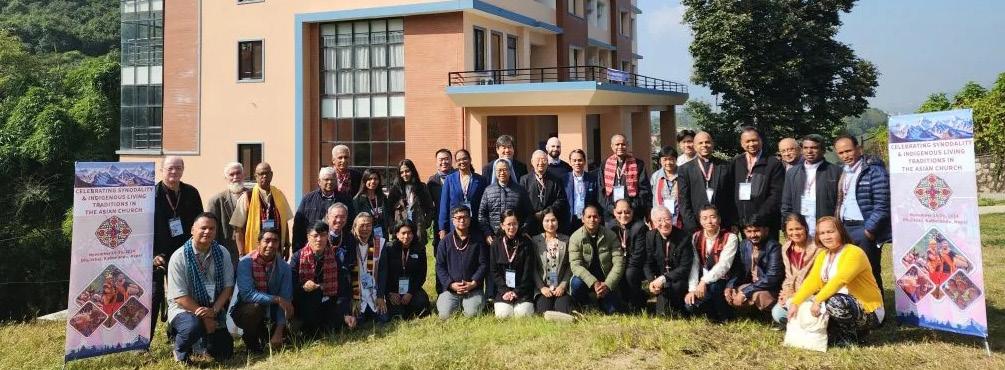
ឡេដាយសារពីួកឡេគបូង្ហាាញពីសាារតក�លិសមុ័ន៍ដុប្រុជាលិឡេប្រុ�របូសពីួកឡេគ”។ “
“If the preservation of songs, stories, dances, and festivities is important, the survival of genuine tribal values is even more important, as they express their deep tribal spirit,” he said.

លោកឯកឧត្តម
ជំនួយការឧបនាយករដ្ឋមន្ត្រី សាយ សំអាល់
បានទៅសួរសុខទុក្ខ ដុនបូស្កូ
ឡេយងសូមឡេកាតសរឡេសរចឡេពាះដុឡេ�រ�សិន៍កចំរបូស ឡេ�កឯកឧតតម
មឡេ�រមយ
ឡេ�កាន៍់សហគមន៍៍សការបូសឡេយង ឡេដាយឡេលិក�កចតដុលិឡេបូសកកមា
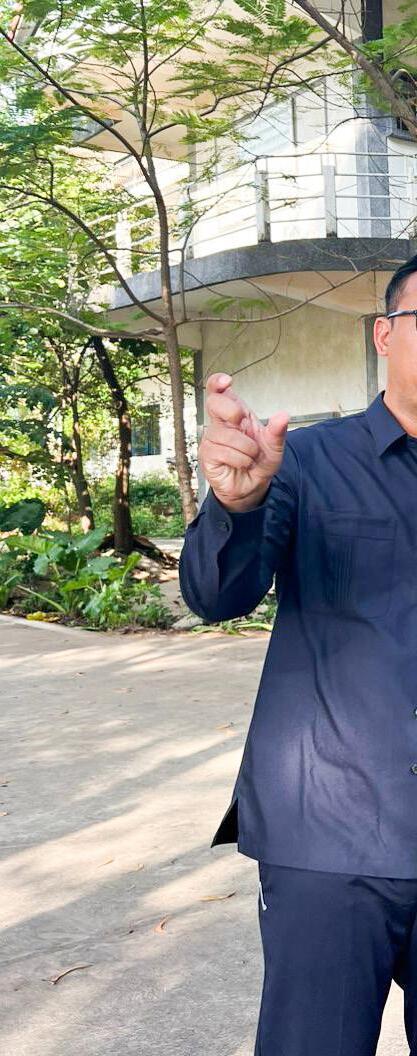
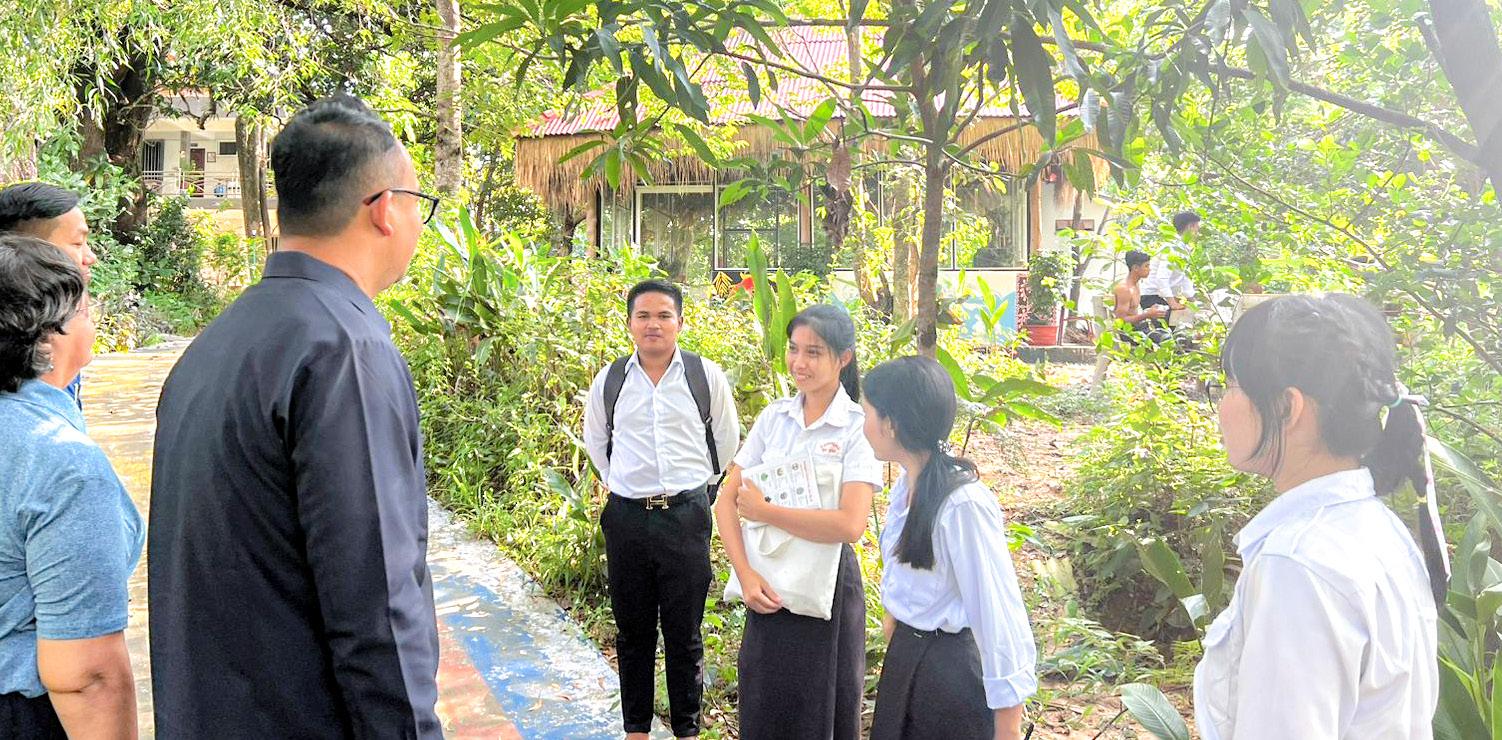

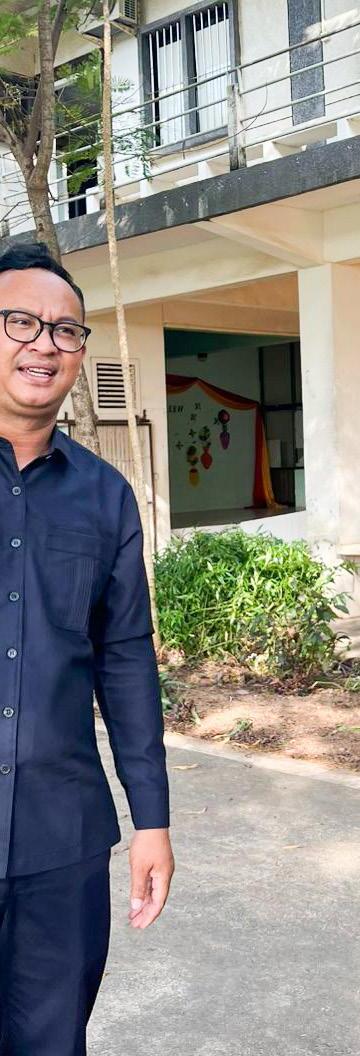
H.E. Som Monorom, Assistant to the
Deputy Prime Minister Say Sam Al, visited Don Bosco
On Tuesday, November 12, 2024, Don Bosco Technical School in Kep Province welcomed a distinguished guest from the government, H.E. Som Monorom, Assistant to the Deputy Prime Minister Say Sam Al. H.E. Som Monorom was interested in the technical education of Don Bosco that focused on youth education and training. He wanted to see the Don Bosco’s method of learning and training and the life skills of young people in Don Bosco Kep. He intends to collaborate with the Don Bosco technical schools in order to guide and encourage high school students who are experiencing high dropout rates, so that they can have better changes of professional education in continuity with the lines of the job market and a better life. His Excellency underlined the staff performance, studies and training, the green environment and family atmosphere of the school, saying it is like home. We appreciate the visit of H.E. Som Monorom to our academic community, encouraging our educative mission of Don Bosco in Cambodia.
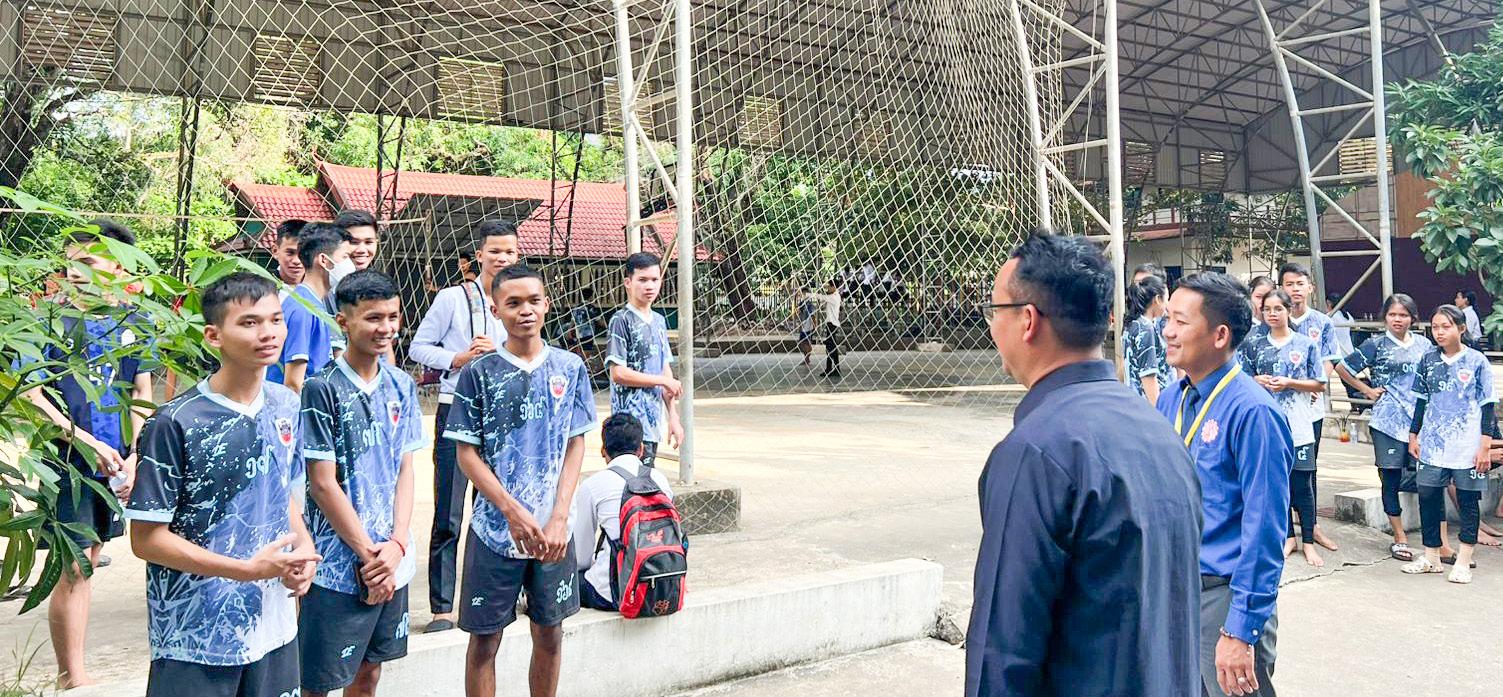

Salesian Family Spirituality Days
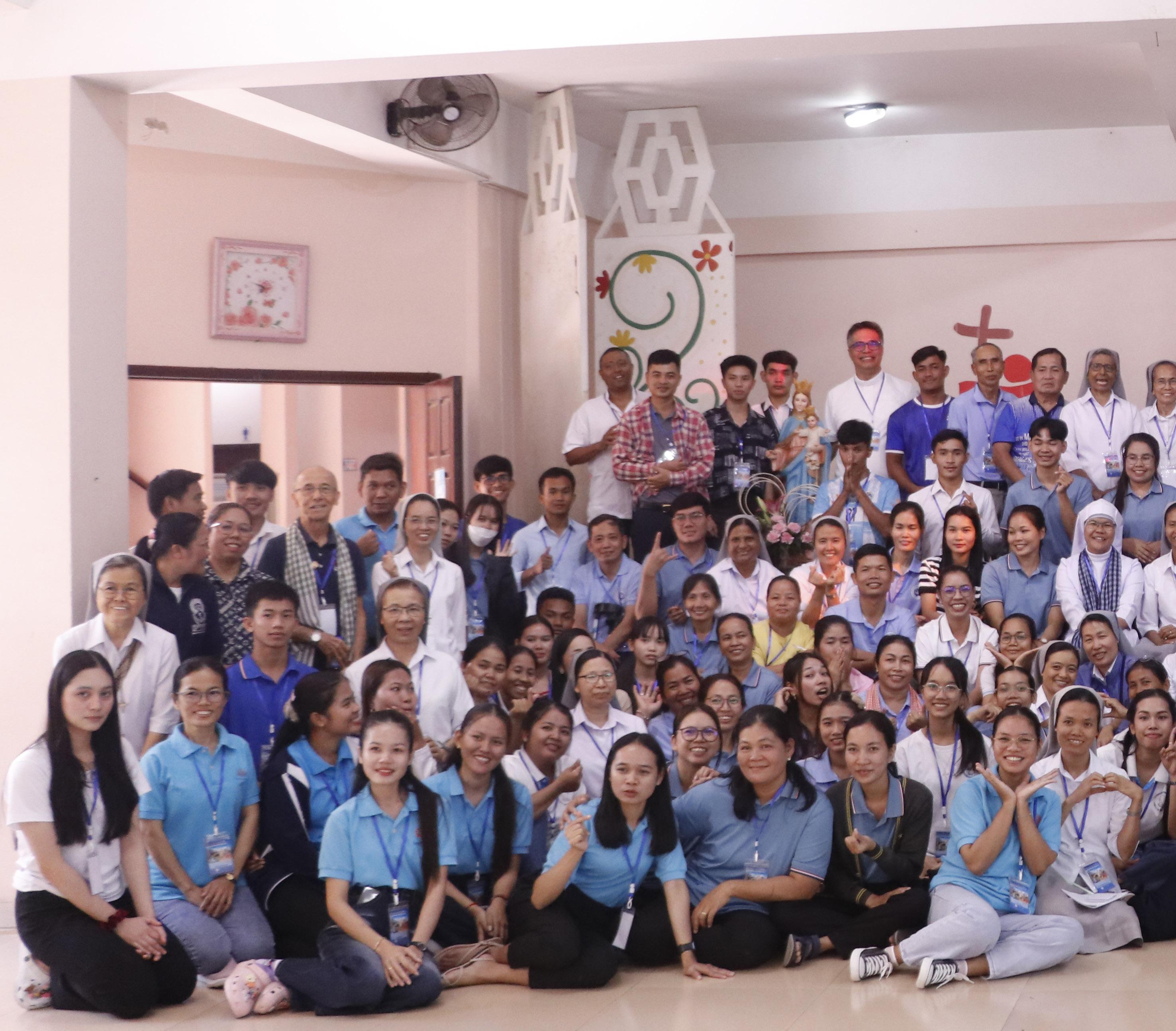
The Don Bosco Cambodia Salesian Family Spirituality Day 2025 will likely be a special occasion for members of the Salesian Family in Cambodia to come together in prayer, reflection, and community, focusing on the charism and spirituality of St. John Bosco.

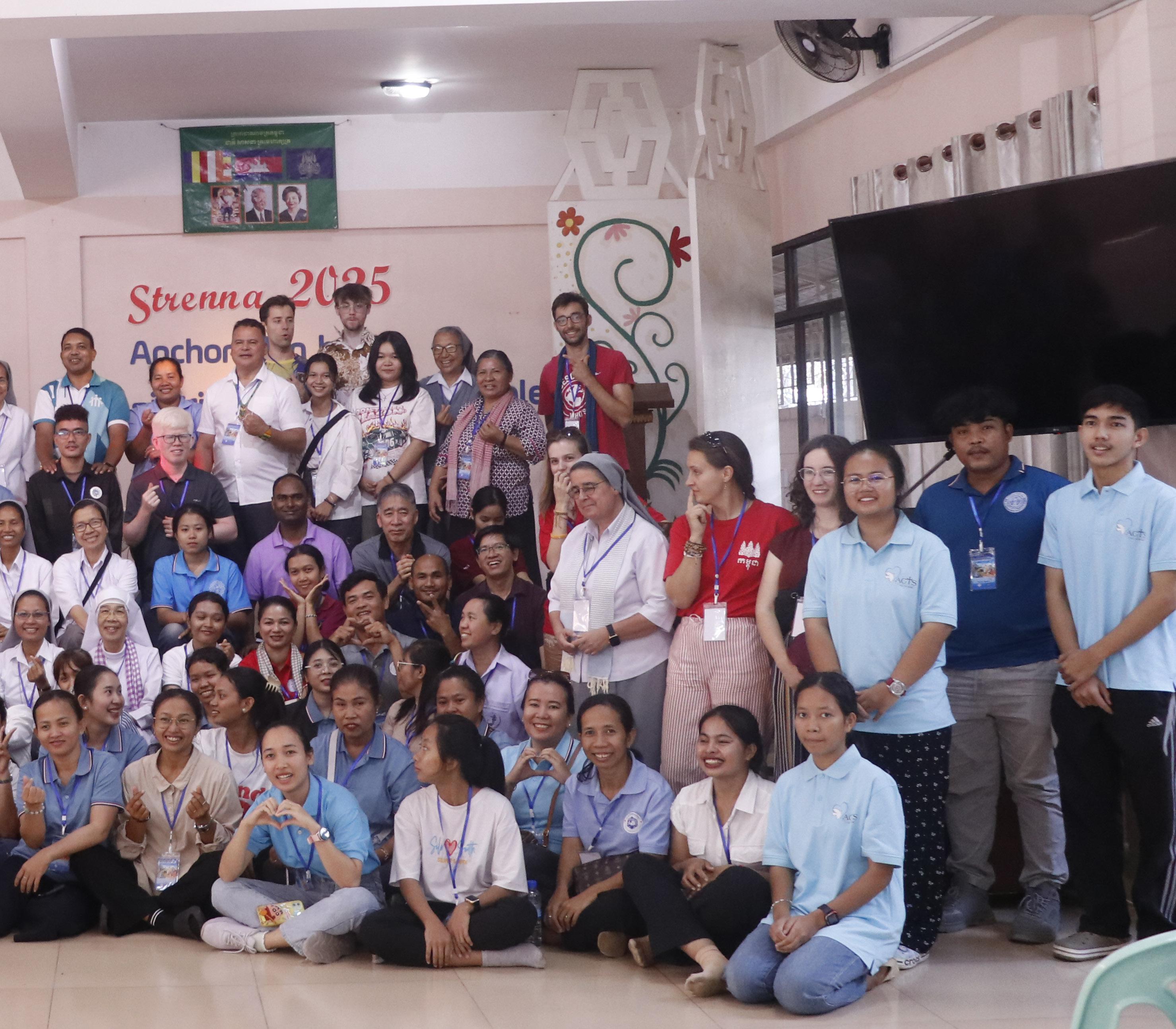
សាឡេ�សាាន៍ ឡេដុមីពីប្រុងងការឡេបូតជាើ ចតតរបូស់ ពីួកឡេគចំឡេពាះ
ឡេបូសកកមានៃន៍ការអំបូ់រំ
ឡេសវ៉ាកមាដុលិ់ជន៍ប្រុកប្រុក

This event typically serves as a time for Salesians, lay collaborators, and other members of the Salesian Family to strengthen their commitment to the mission of education, youth empowerment, and service to the poor, inspired by Don Bosco’s values.
Such gatherings often include Mass, moments of spiritual reflection, talks, and sharing of experiences, with an emphasis on renewing the spiritual life of those involved in the Salesian mission.
�ន៍អំំពាេ�េឱ្យយមាន៍កចំសន៍�ជាបូងបូន៍
ឡេ�រពីការការពារបូរសាន៍របូសពីួកឡេគ ឡេដាយសងូត�ៃន៍់ថា
៨០% នៃន៍ដុឡេ�ឡេលិដែ�ន៍ដុ គសាតឡេ�ឡេប្រុកាមការយកចត �� កដាក់រ បូស់សហគមន៍៍ជន៍ជាតឡេដុមភាគតច។
ដែ�ៃងការ�៍ចងឡេប្រុកាយនៃន៍ឡេេ�កាអាសឡេ�ប្រុបូឡេ�សឡេន៍�ាលិ ដែដុលិមាន៍ចំ�ងឡេជងថា
Asian Indigenous leaders from 13 countries have called for a fraternal dialogue to respect their environmental guardianship, emphasizing that 80% of Earth’s land is under the care of Indigenous communities.
ឬពាក់ពីន៍ធន៍ងអំងគការស�ធជន៍ជាតឡេដុម។
ការអំំពាេ�េរបូស់សឡេមីច�បូ
ន៍ងសហគមន៍៍���ន៍ប្រុបូមលិ�ត�ំ

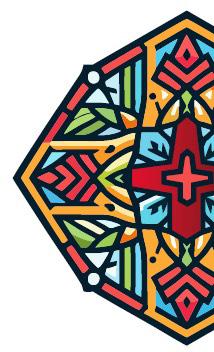
This concept was highlighted in the final statement of the Asian Forum in Nepal, titled “Celebrating Synodality and Indigenous Living Traditions in the Church in Asia.” The Forum included bishops, priests, lay faithful, experts, religious men and women, and young people, all belonging to Indigenous nations or involved with Indigenous rights organizations.
Following Pope Francis’s call for a synodal Church, various organizations, institutions, and communities gathered to reflect on many aspects of Church life in different regions of the world, inspired by the Laudato Si’ and Laudato Deum documents of the South American Pontiff. Indigenous peoples, who make up 63% of Christians worldwide and 73% of Asian Christians, are a significant sector of the Catholic Church.
“The face of the Church, both in Asia and globally, has yet to become indigenous,” and “it is imperative to recognize that Indigenous Peoples are not on the periphery but at the heart of the Church,” stated the final declaration signed in the traditional mountainous town of Dhulikhel, Nepal, on December 8, 2024.

Asian Indigenous Leaders call on a fraternal dialogue to respect their environmental guardianship
េបូតតអាកាសធាតសកលិ
ឡេលិប្រុបូជាជន៍ឡេដុម
ឡេសដុាកចំសកលិនៃន៍ក�មាយន៍សត
ន៍ងលិ�ធន៍យមកំពី� ងជះឥ�ធពីលិឡេលិភពីដែ�ន៍ដុទាំងមូលិ
ឡេដាយសហគមន៍ដែដុលិង្ហាយរងឡេប្រុ�ះបូ��
រស់រាន៍មាន៍ជេត។

ដុូចជាជន៍ជាតឡេដុមភាគតចជាឡេដុម។
ក៏ឡេដាយ
ឡេ�ដែតប្រុបូឈមម�ខិន៍ងការលិ�ក៖
ការរឡេ�ភស�ធមន៍�សិ
The global climate crisis and the high pressure on native populations worldwide from a global economy of communism, technocracy, and neoliberalism are affecting the entire planet, with the most vulnerable communities struggling to survive. Migration, global warming, violent conflicts, humanitarian crises, and ecosystem destruction demand that humanity look back to those who live in connection with the first essences of life and ancestral wisdom, such as Indigenous peoples. However, Indigenous peoples worldwide still face difficulties: “We call upon all those perpetrators to urgently cease all forms of discrimination against Indigenous communities, the dispossession of land, the forced displacement of populations, the illegal destruction of their ecosystems, exploitation of their biodiversity, violation of human rights, and the methodical processes of acculturation and destruction of Indigenous cultures,” says the statement, while calling for a fraternal dialogue to respect their guardianship.
The Indigenous Asian Forum on synodality led to the creation of Roots: Catholic Network Among Indigenous Peoples of Asia, to continue the dialogue, reflection, and vision for a more inclusive Church, walking with its own people, including the Indigenous nations of the ancient continent. Inspired by the Amazonian Synod, some members envisioned a Pan-Asian version that would open the doors for pastoral, missions, theology, and spirituality processes from Indigenous perspectives.
គ្រួសារសាឡសា៊នរបស់លោកឪពុកបូស្កូ
ប្រុបូនៃពី�នៃន៍ “រាប្រុតសសត” ឡេ�កំងប្រុកុមប្រុគួសារសាឡេ�សាន៍
បូូសមាន៍ឫសគលិឡេ�កំងការអំន៍�េតផ្កាទលិខិៃន៍របូសមាត
យឡេកាងៗន៍ងយ�េជន៍
ប្រុកុមប្រុគួសារសាឡេ�សាន៍ឡេ�ដែតបូន៍ប្រុបូនៃពី�
ឡេន៍ះ ឡេដាយសប្រុមបូតាមបូរបូ�ជាក�ក់រ
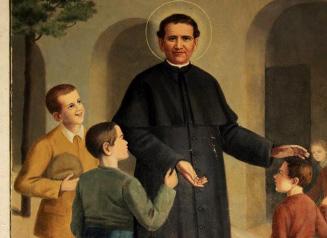
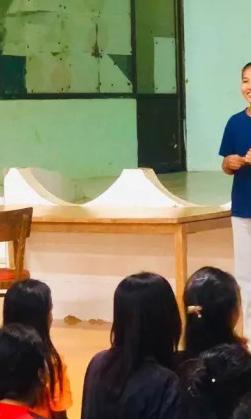
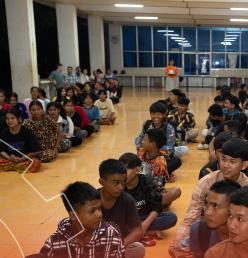

The tradition of the “Good Night” in the Salesians of Don Bosco
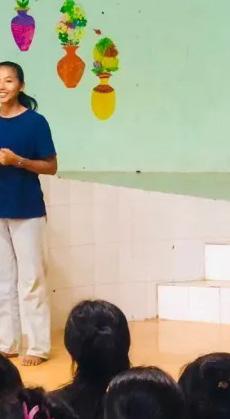
The tradition of the “Good Night” in the Salesians of Don Bosco has its roots in the personal practices of Don Bosco’s mother, Margherita Occhiena. When Don Bosco began his work with young boys, he adopted this practice from his mother. Every evening, after night prayers, Don Bosco would gather the boys and offer a few kind words, giving advice or counsel about what to do and what to avoid. This brief reflection was meant to help the boys think about their actions and grow in virtue.
The “Good Night” became a powerful tool for fostering a sense of community, moral reflection, and personal growth among the boys. Even today, Salesian houses continue this tradition, adapting it to their specific contexts. Whether it’s a “Good Night,” “Good Morning,” or “Good Afternoon,” the essence remains the same: to provide a moment of reflection, encouragement, and connection before the day ends.
This simple yet profound practice helps young people to pause, reflect on their day, and consider how they can grow in holiness and virtue. It’s a beautiful way to end the day with a sense of peace and purpose.
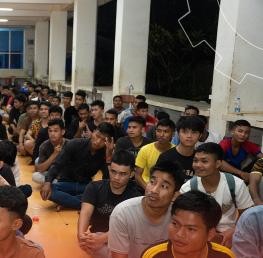
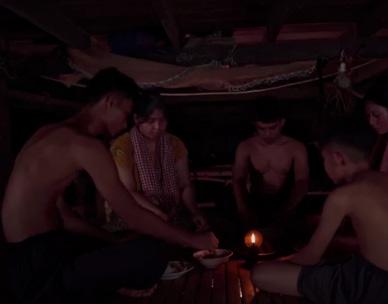

Strenna 2025 - Anchored
in Hope, Pilgrims with Young People: A Message from the Rector Major of the Salesians
សាកលិេ�ា�ការសាឡេ�សាន៍
ឡេន៍ះជាការសឡេងខបូខិៃៗនៃន៍ច��
ឡេ�ះយ�ថាូកំងកតសងឹម៖
េឡេដុអំឡេន៍ះសងូត�ៃន៍ឡេលិសារៈសំខាន៍់នៃ
ប្រុបូឈមម�ខិន៍ងបូញ្ចាំានៃន៍ពីភពីឡេ�កសពីើនៃ�ៃឡេន៍ះ។
ខាបូខិាន៍ ន៍ងស��ដុាន៍យម
ជេតរបូសពីួកឡេគ។
យ�េជន៍កំងការរ�ករក�ៃេរបូសពីួកឡេគ។
ការដែ��ំខាង

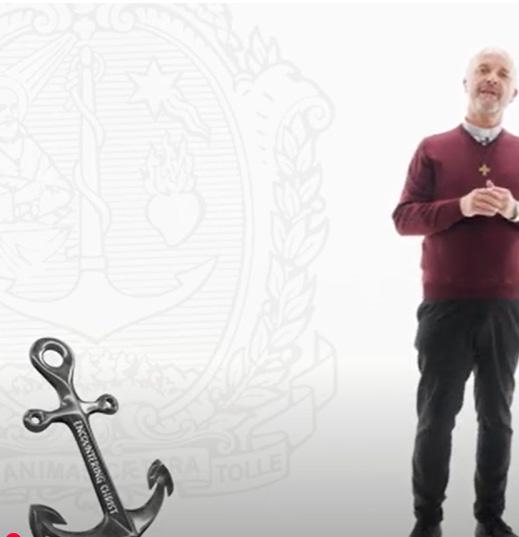

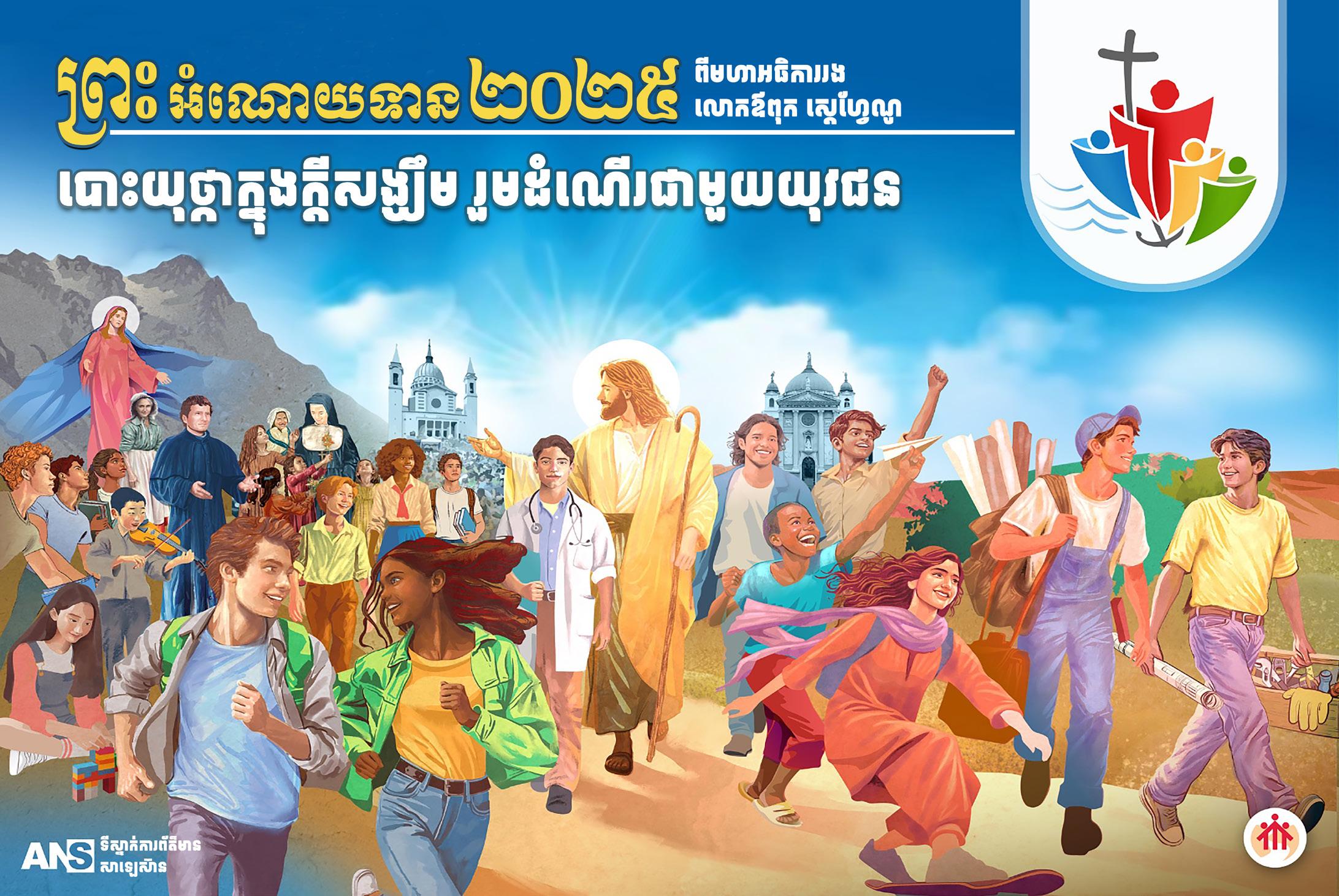
Strenna 2025 – Anchored in Hope, Pilgrims with Young People is the annual message of the Rector Major of the Salesians, intended to inspire and guide the Salesian family worldwide. The theme for 2025 focuses on being anchored in hope and journeying together with young people.
Here’s a quick summary of the key points:
Anchored in Hope: The video emphasizes the importance of hope in facing the challenges of today’s world. It encourages viewers to remain steadfast and optimistic, despite difficulties.
Pilgrims with Young People: The message highlights the significance of accompanying young people on their life journey. It stresses the role of mentors and guides in helping youth navigate their paths.
Spiritual Guidance: The Rector Major calls for spiritual renewal and deeper faith to provide a strong foundation for young people.
Community and Service: The video underscores the value of community, solidarity, and service, encouraging everyone to work together for the common good.
I hope this gives you a good sense of the video’s content! If you want to dive deeper into the themes, I recommend watching the full video here.

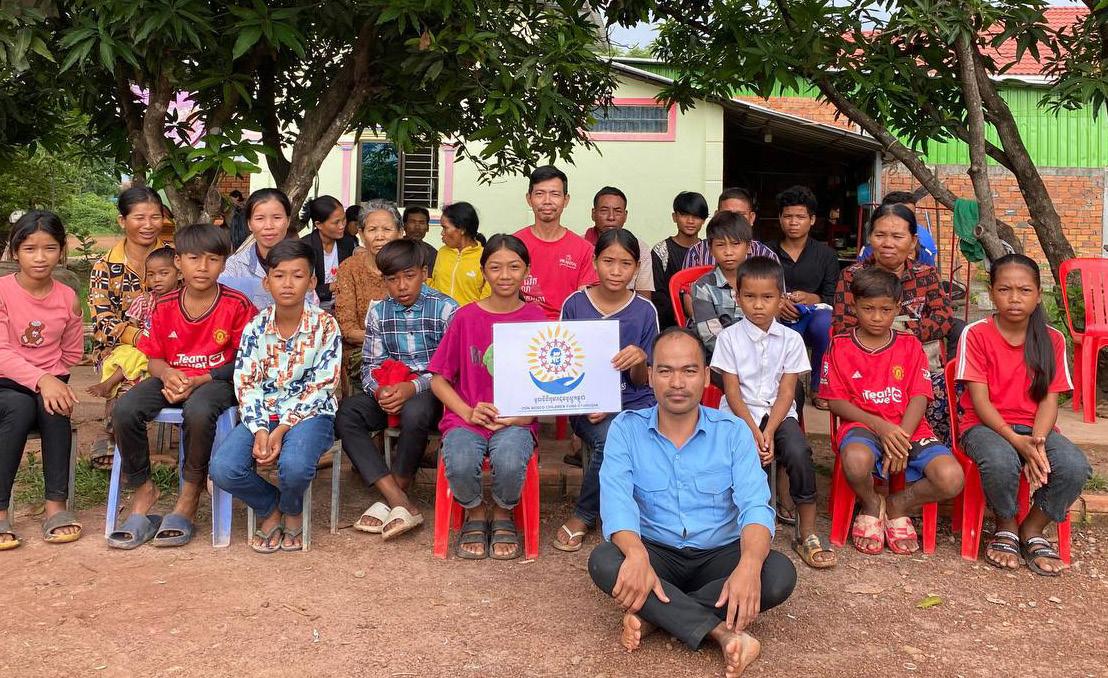
Mr. Van Bophai, an example of leadershipfor the good of rural children

ខាងឡេជងនៃន៍ប្រុបូឡេ�សកមជា កំងប្រុសុកប្រុតពាំង
ឡេខិតតឧតតរមាន៍ជ័យ ជាក ដែន៍ៃងដែដុលិ�ត�ន៍ឡេបូក
មជឈម�លិក�ំពីយ�័រស
មកកដែន៍ៃងរបូស�ត
ឬឡេដុមីជួយកំងការសការបូសពីួកឡេគ។
Mr. Van Bophai is a former teacher of Don Bosco Technical School of Kep Province in the Department of Information Technology. He is also a past pupil of he Saint Paul Institute of Takeo Province. He moved to the north of Cambodia, in Trapean Prasat District, Oddar Meanchey Province, where he opened a computer centre for local children. Students come to his place to learn computer, English or to be assisted in their studies. For this reason, some of the children are being supported by the Don Bosco Brother Sun Scholarship Program. At the moment, Mr. Van Bophai has 34 students (18 bos and 16 girls).

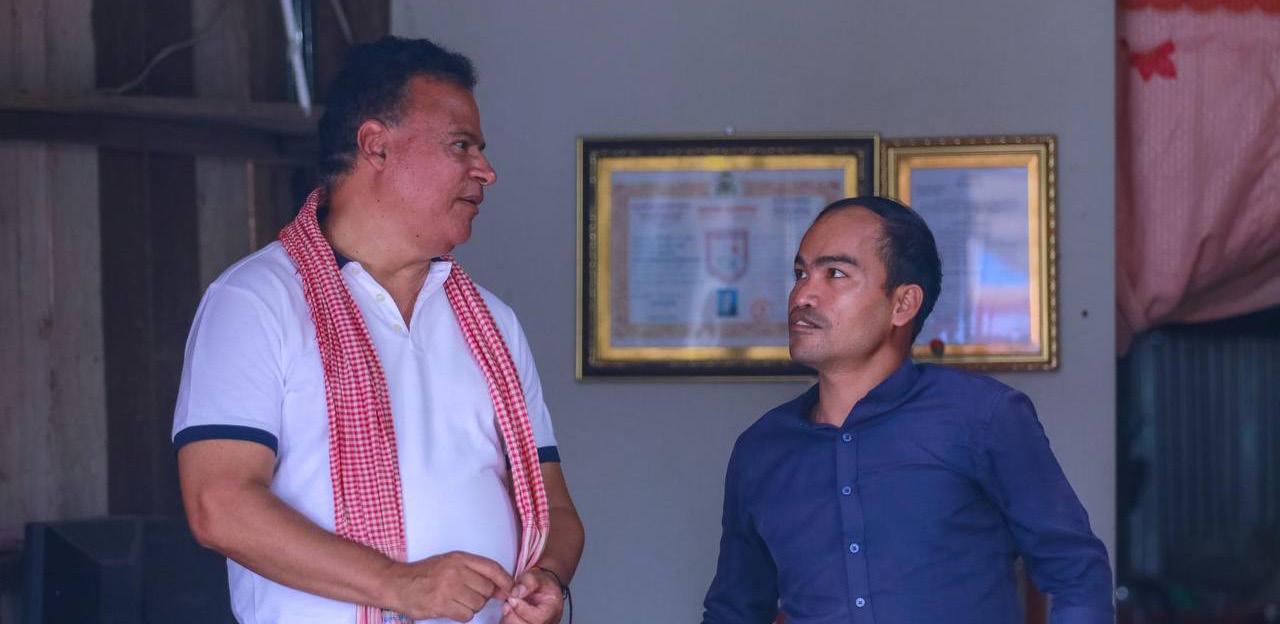
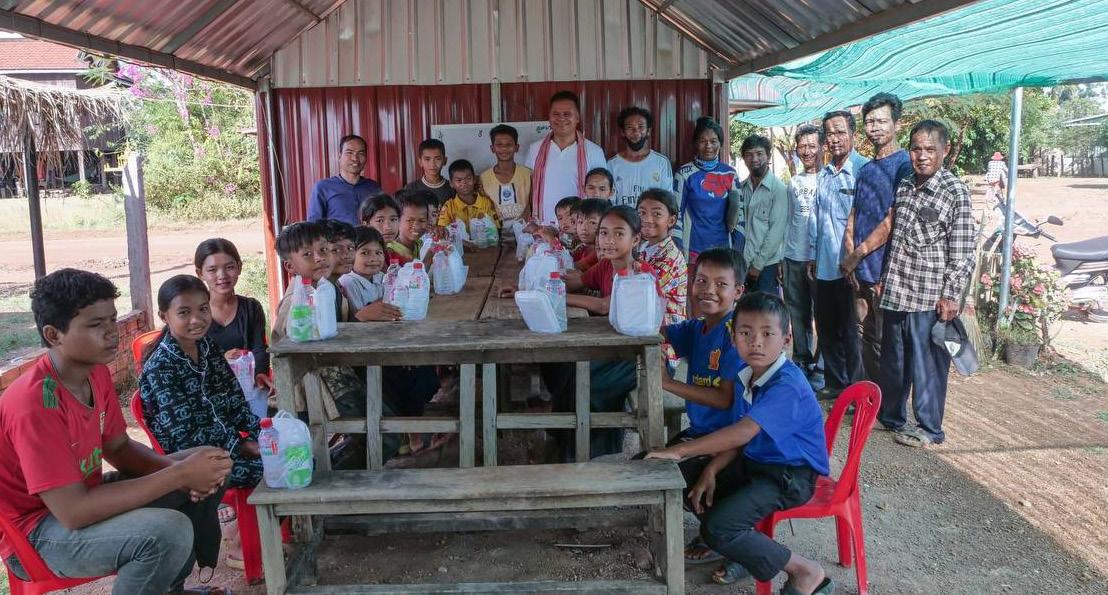
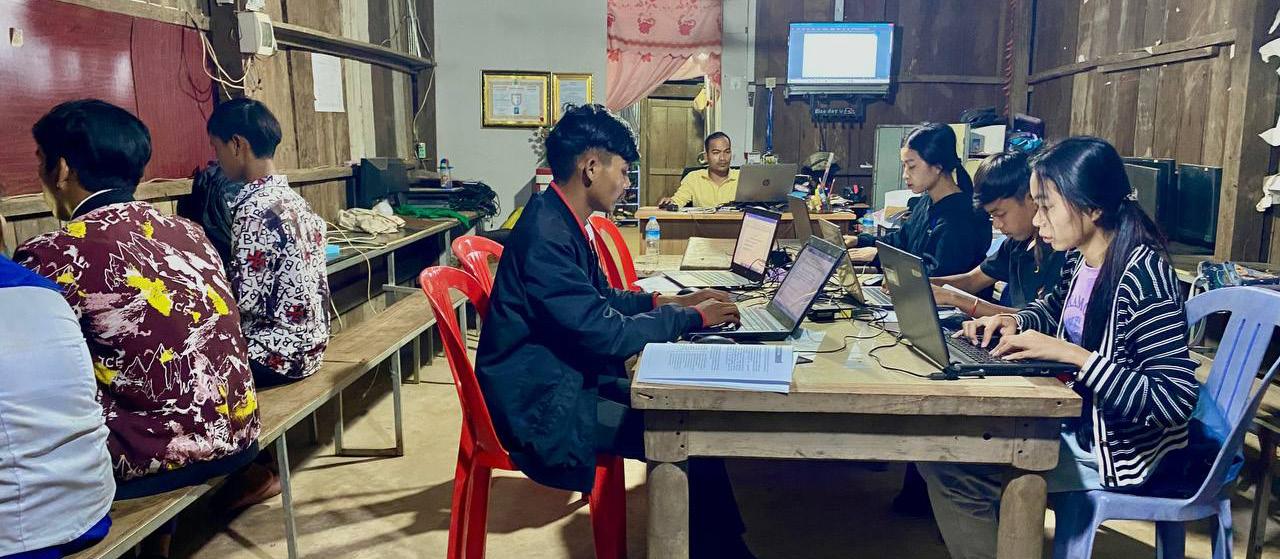
“The
Establishment of Father Bosco’s Youth Center” On The Feast Day of The Immaculate Conception
ថ្ងៃ�ៃបុុណ្យយព្រះ�ះនាងម៉ាារីគ្មាានជំពាក់់បាបុ
នៅ�ថ្ងៃ�ៃទី៨
នៅ�ក់�នៅពាះព្រះ�ះនាងម៉ាារី។
ចាបុនៅ�មគឺនត�ត�នៅ�មនៅនះ
នៅ�ព្រះបុនៅទីសំអំុ
�វ�ត នងក់តសំងឹម�លយុវជំនដែ�លរីងនៅព្រះគ្មាះ។
មជំឈមណ្យឌលយុវជំនបានចាបុនៅ�ម�បុ� ង នៅ�យ
បុនៅព្រះមព្រះក់ុមនៅក់ាងព្រះបុសំត��ម�យព្រះក់ុម ដែ�លម៉ានធ្នូនធាន
ម៉ានក់ព្រះមត។
រី�មបុញ្ចូូ លគ្មាូ
តាមរីយៈវធ្នូសាស្រ្តសំថ្ងៃ�ូព្រះបុឌិតដែ�ល
The Feast Day of the Immaculate Conception, celebrated on December 8, holds dual significance as a Christian holy day and as the founding date of Father John Bosco’s first Youth Center. Rooted in his deep devotion to the Virgin Mary, Don Bosco launched this initiative during 19th-century Italy to provide marginalized youth with education, spiritual guidance, and hope.
ទី�លទី��យ នៅ�យបុ�សំគឺនត
ជំពាក់់បាបុបានបុនៅព្រះមការីជាថ្ងៃ�ៃបុុណ្យយសារីទីន នងការី
The Youth Center began humbly, serving a small group of boys with limited resources. Through innovative methods combining catechism, vocational training, and recreation, it became a sanctuary for personal and spiritual growth. Don Bosco’s mission, grounded in values of kindness and diligence, resonated widely, inspiring the global Salesian movement dedicated to youth empowerment.
The Feast Day of the Immaculate Conception serves as a day of celebration and reflection for the Salesian community, honoring Don Bosco’s legacy and commitment to


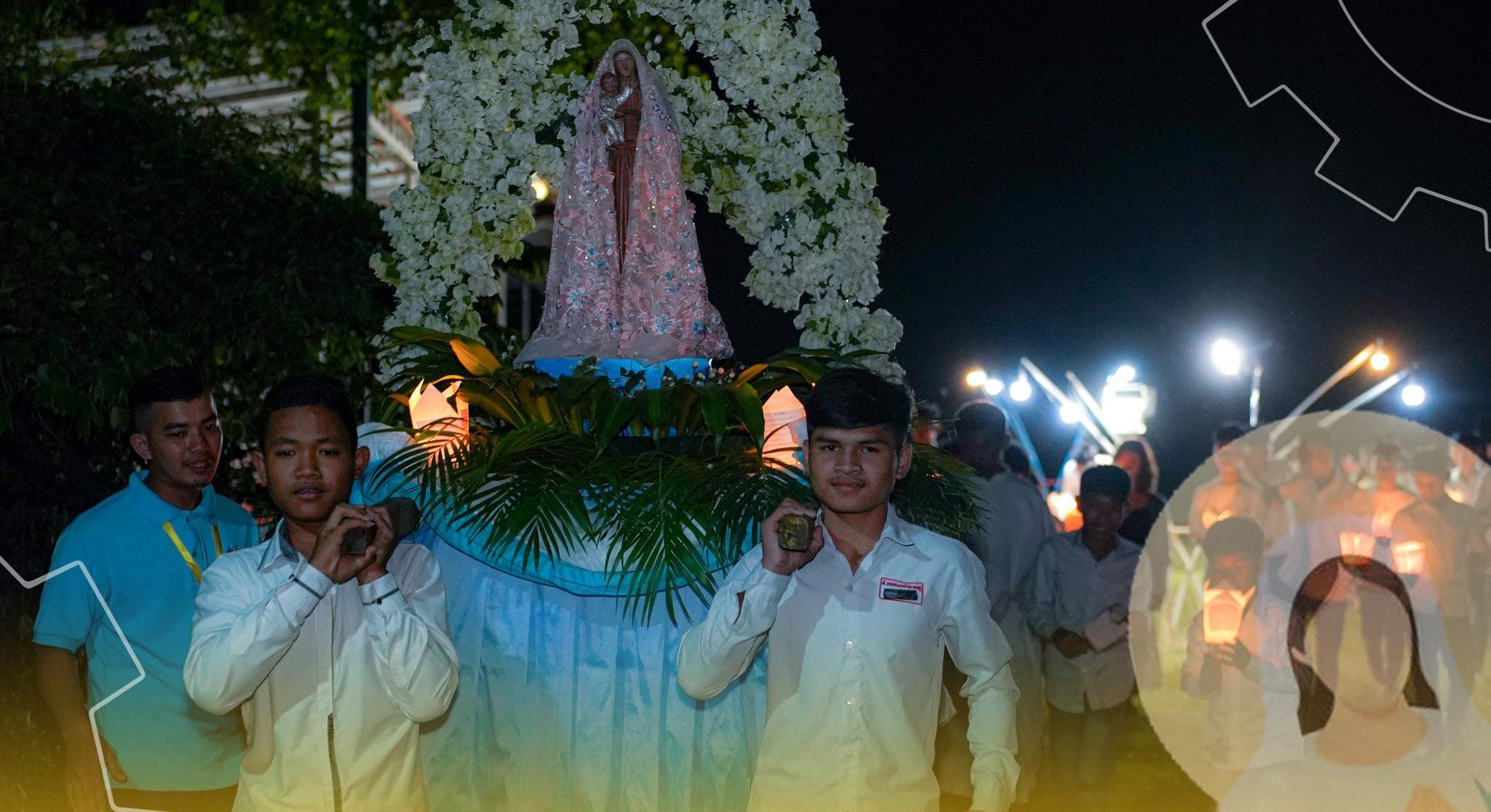
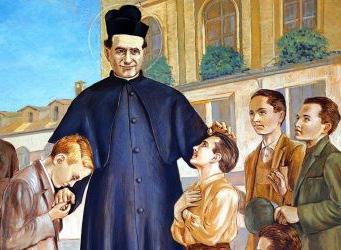

នៃចំប្រុបូឌឺតឡេដុមីពីប្រុងងការបូឡេប្រុងៀន៍
សកា ឡេដុមីធា�ន៍េភាពីសមប្រុសបូជាមួយ
តប្រុមេការរបូស់សងគម។
- វ៉ាយតនៃមប្រុបូស�ធភាពីនៃន៍ម�ខិេជាាៈ
បូចំបូីន៍ំឡេ�ឡេលិលិ��លិនៃន៍ការឡេរៀន៍សប្រុតរបូសសសិ។ - ពីប្រុងងគ��ភាពីម�ខិេជាាៈ
- ជរ�ញកចំសហប្រុបូតបូតតការៈ
ការអំន៍�េតប្រុបូកបូឡេដាយប្រុបូស�ធភាពី
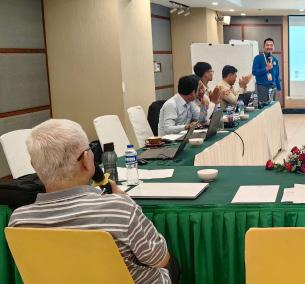
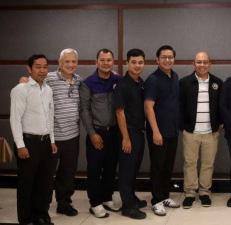
ឡេលិក�កចតតការដែចករដែលិកចឡេ�ះដុងកំងចឡេ�មប្រុគបូឡេប្រុងៀន៍

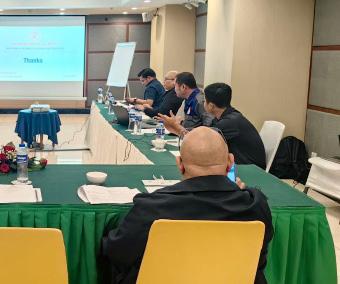
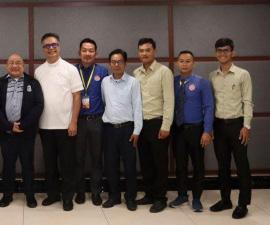
Don Bosco Participates in a Workshop on Strengthening and Evaluating Core Subjects
On [11-13 December 2024] Don Bosco’s educational team actively participated in a workshop focused on strengthening and evaluating core academic subjects. The event, held at [insert location], brought together educators, administrators, and academic experts to discuss innovative approaches and strategies to enhance the delivery and effectiveness of core subjects in the curriculum.
The workshop aimed to:
- Enhance Subject Quality: Review and refine the curriculum to ensure alignment with current educational standards and societal needs.
- Evaluate Course Effectiveness: Analyze the impact of existing teaching methods and assessment strategies on student learning outcomes.
- Promote Collaboration: Facilitate knowledge-sharing among educators to identify best practices and foster a culture of continuous improvement.
- Incorporate Student Feedback: Include insights from students to better understand their needs and improve their overall learning experience.
The workshop proved to be an enriching experience, providing valuable insights and actionable strategies for all participants. Don Bosco’s involvement reflects its unwavering dedication to advancing education and empowering students to excel both academically and personally. By implementing the workshop’s recommendations, Don Bosco aims to further strengthen its core subjects, ensuring they remain relevant and impactful in today’s dynamic educational landscape.

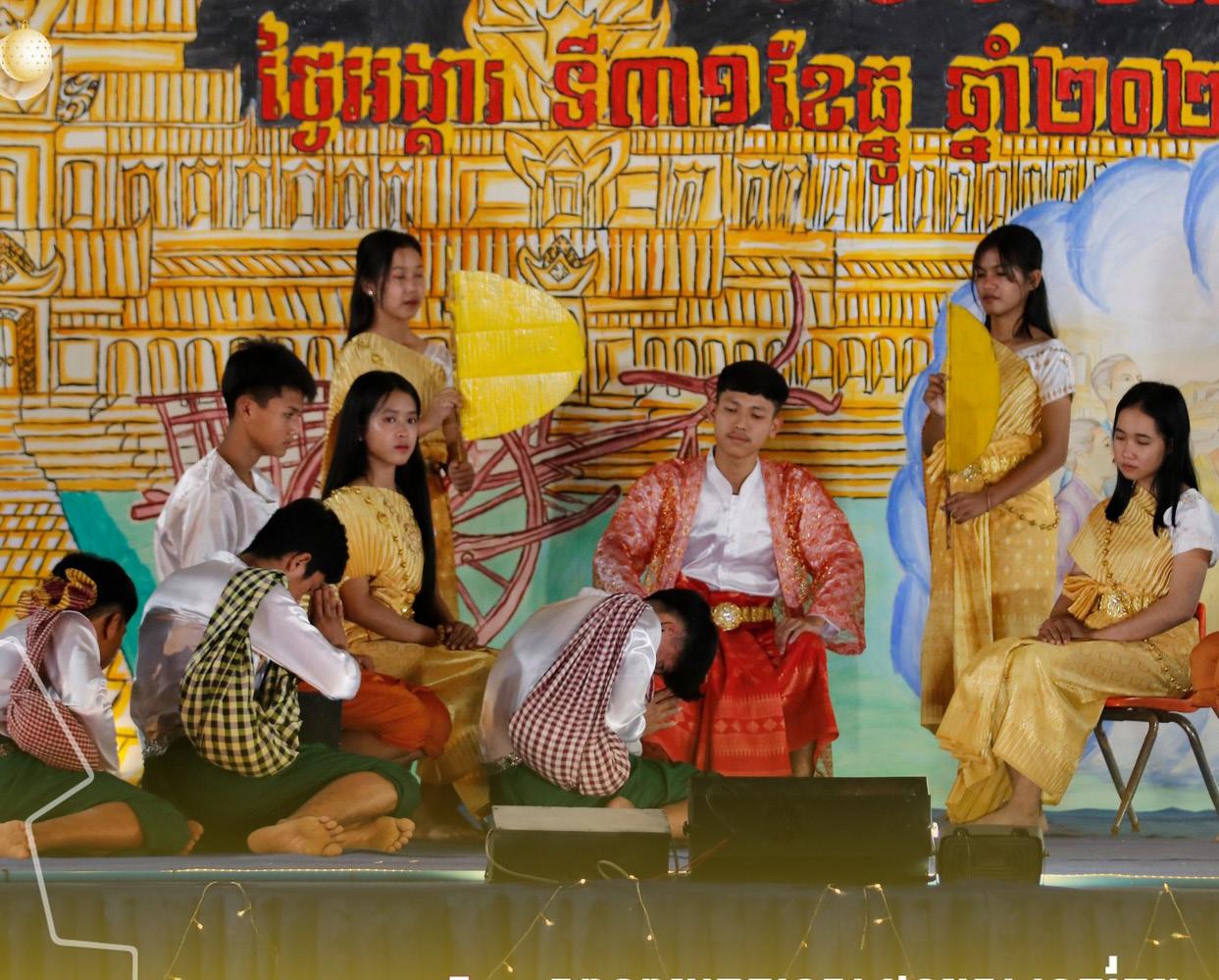
CHRISTMAS 2024 in Don Bosco Cambodia
ពី�បូ��យនៃន៍កឡេ�តរបូសប្រុពីះឡេយសាូ
ឡេដាយ�សសាន៍�សសិ បូ�គគលិក

The spirit of Christmas filled the air at Don Bosco Cambodia this year, bringing with it a wave of joy, generosity, and togetherness. From festive decorations to heartwarming performances, the celebrations were a testament to the true meaning of the holiday season.
The festivities kicked off with the annual Christmas tree lighting ceremony, where students, staff, and guests gathered to witness the sparkling lights illuminating the campus. The event was followed by a series of carol singing performances, showcasing the students’ musical talents and spreading Christmas cheer.

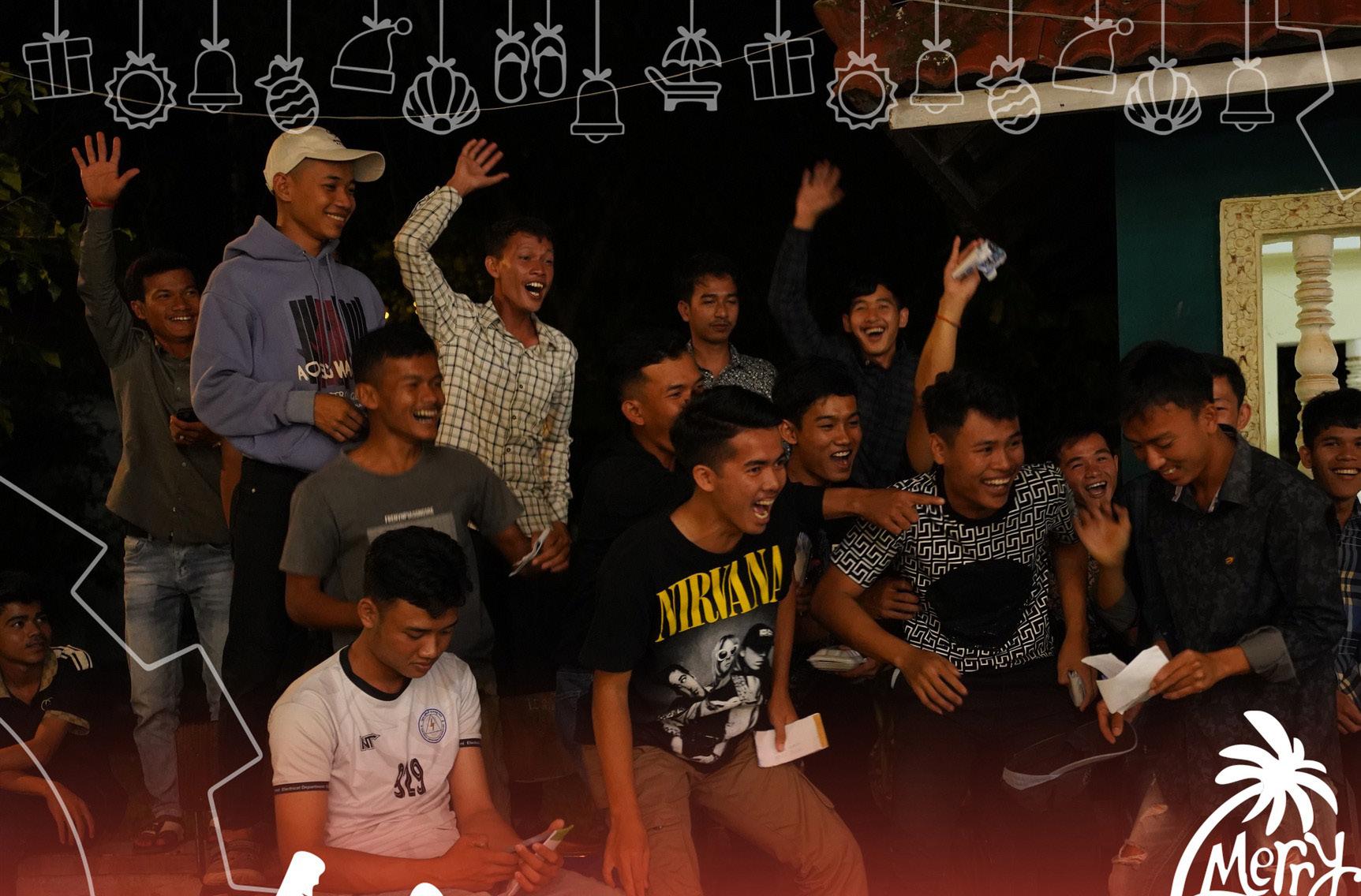
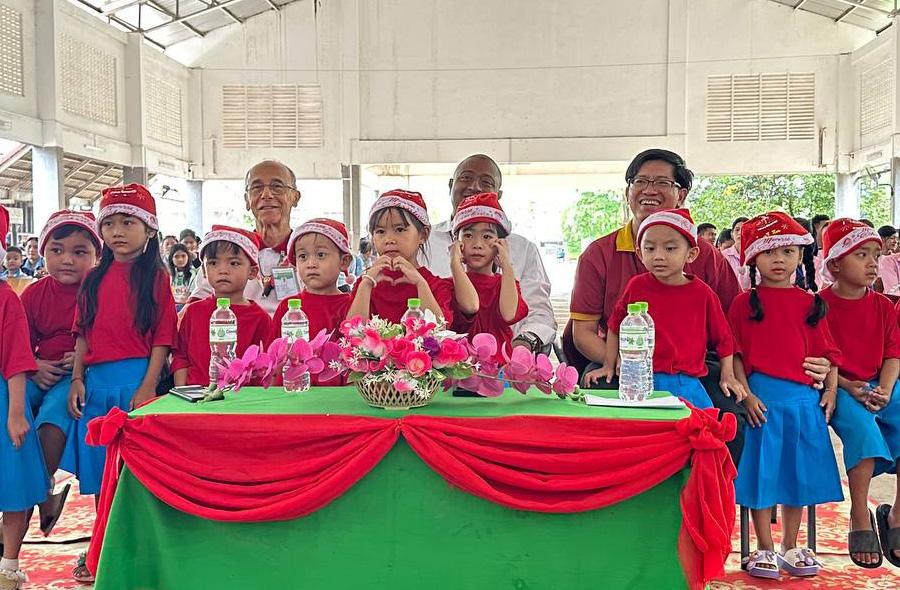
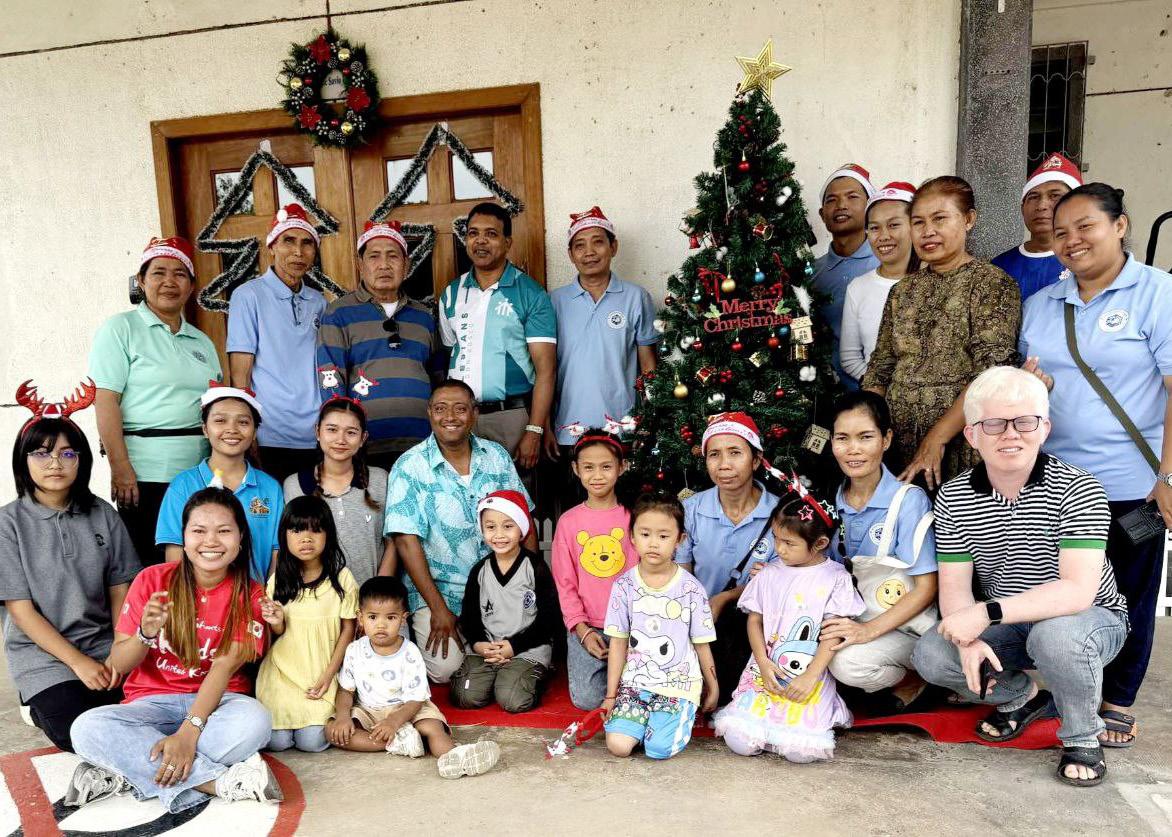
ឡេដុមីចលិរួមសហគមន៍៍
ពី�បូ��យប្រុពីះឡេយសាូប្រុបូសូត
បូរឡេេ�សា�។ តបូមាន៍ឡេប្រុគឿងសបូីកមាឡេ�ើឡេដាយនៃដុ អាហារបូ��យ ន៍ងឡេហគមដែដុលិជរ�ញបូរយាកាសរស់រឡេេក។
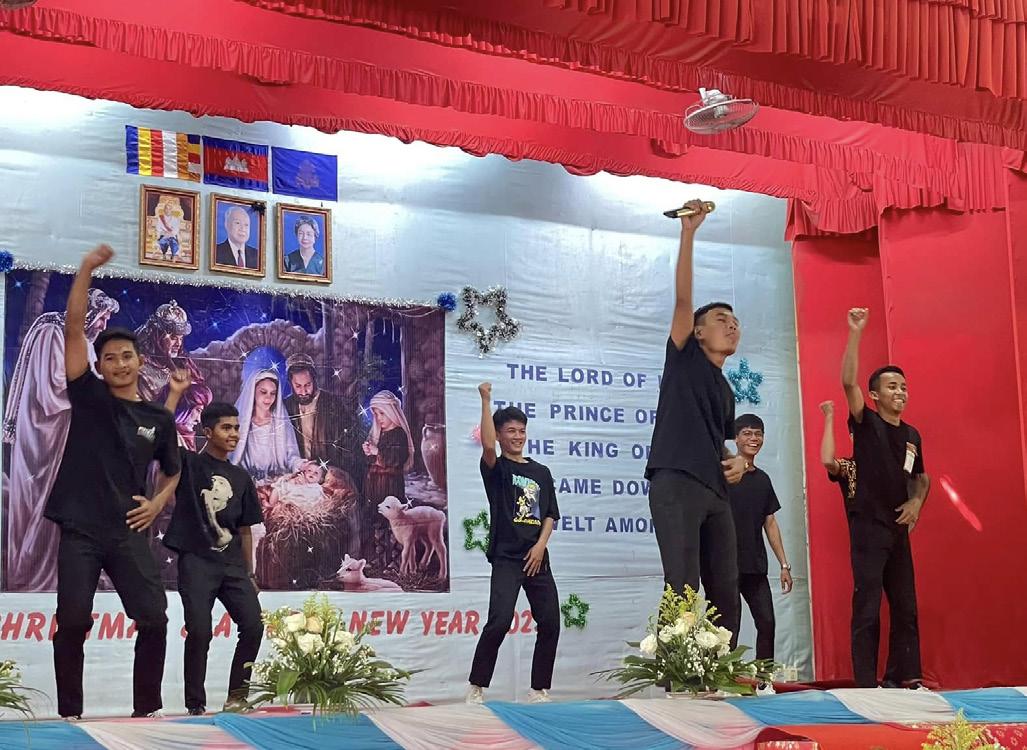
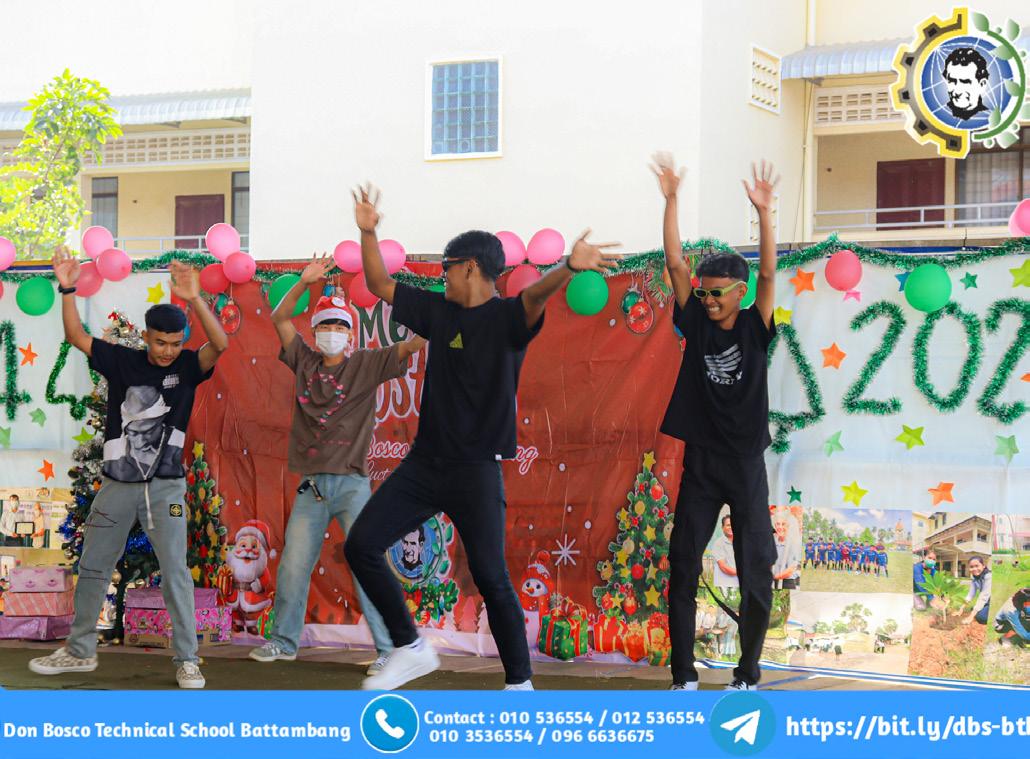
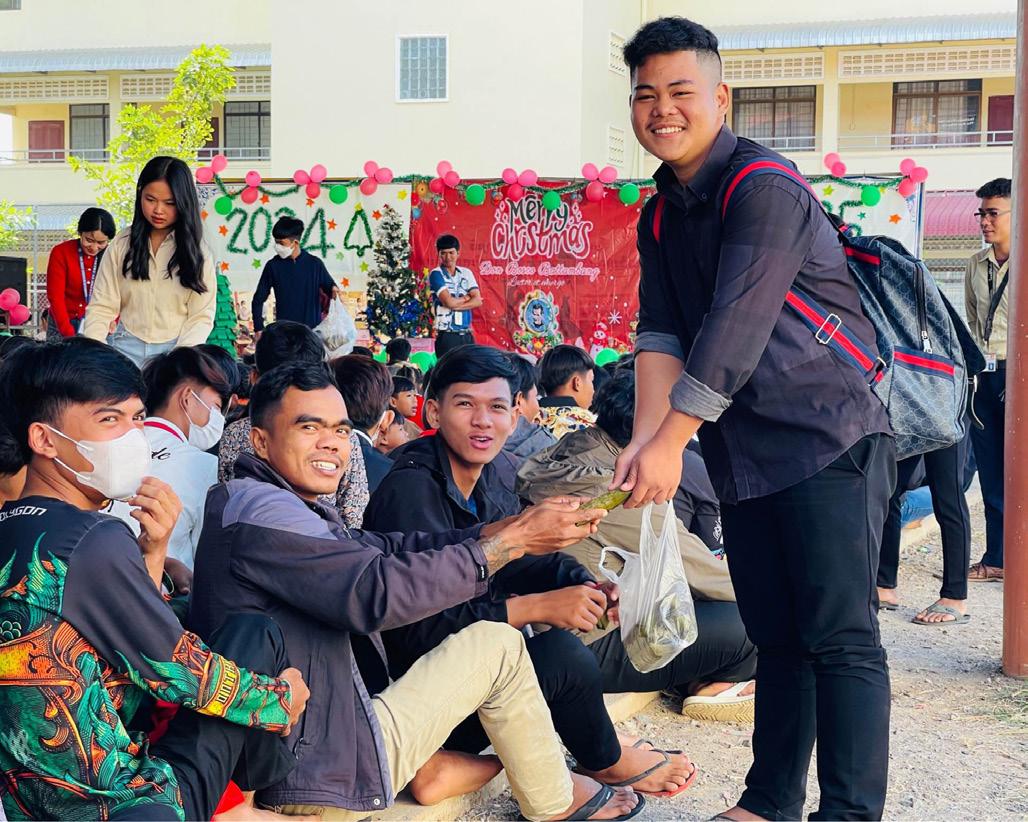
The Christmas celebrations at Don Bosco Cambodia were more than just festive events; they were a reminder of the importance of compassion, kindness, and unity. As the year comes to a close, the Don Bosco community looks forward to a brighter future, filled with hope and goodwill.
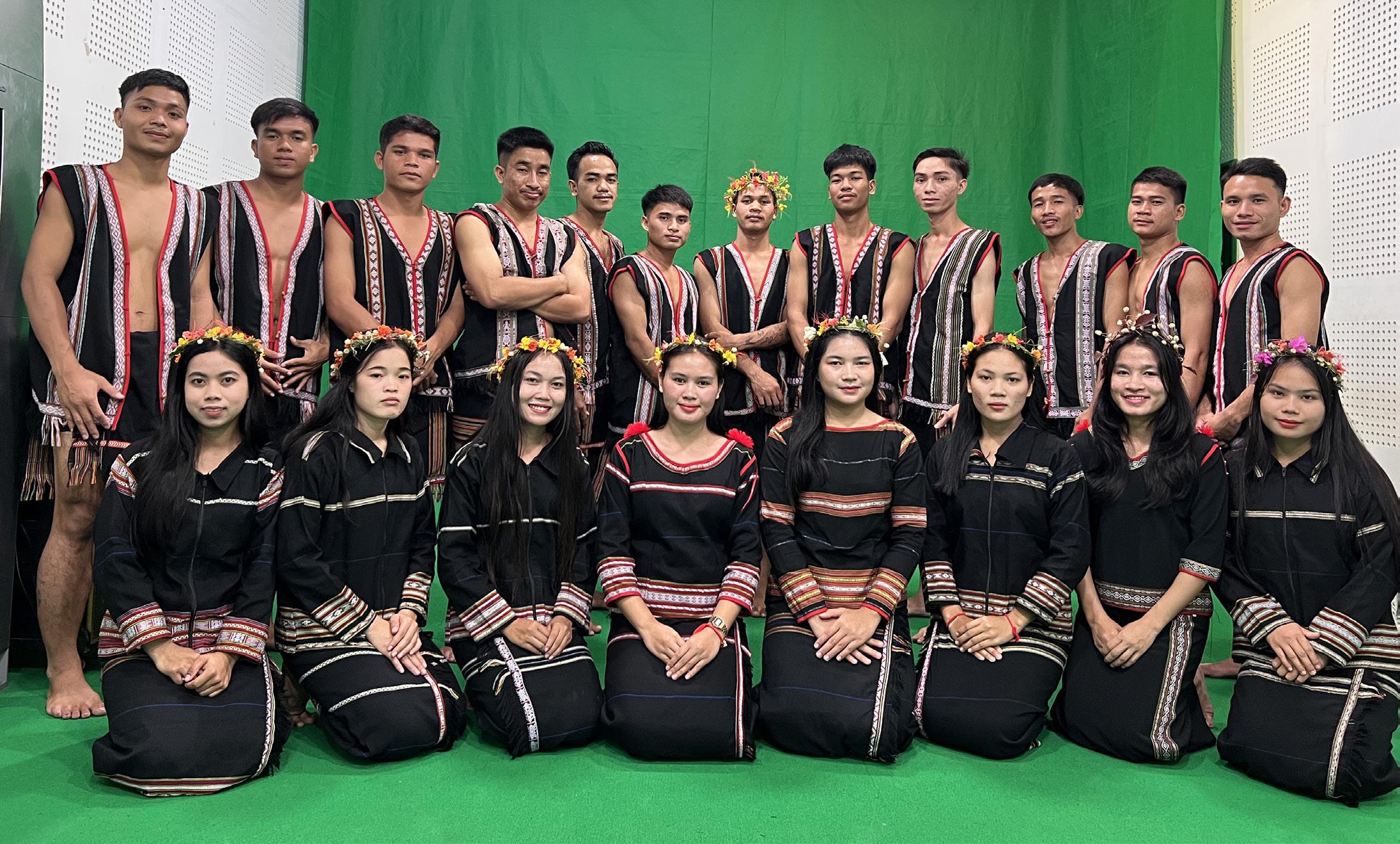
ផ្ញើើសារជូនពរក្នុងឱកាស
Christmas 2024 and New Year 2025 Greetings from the Jarai Indigenous Students of Don Bosco

បូ��យប្រុពីះឡេយសាូប្រុបូសប្រុត
ទាំង អំស�ំកំងឱ្យកាសឆ្នាំំ ំ�ា
ឡេដាយសន៍តភាពី កតសងឹម
សូមឲ្យយពីន៍ៃនៃន៍បូ��យប្រុពីះឡេយសាូប្រុបូសប្រុតភៃមកឡេលិ
អំំក ឡេដាយ�ំមក ន៍េភាពីកកឡេ�ីដុលិដុួងចត
On this joyful occasion, the Jarai Indigenous students of Don Bosco Kep extend our heartfelt Christmas greetings and wish everyone a Happy New Year filled with peace, hope, and prosperity.
May the light of Christmas shine brightly upon you, bringing warmth to your hearts and homes. As we embrace the New Year, we hope it brings new opportunities for growth, understanding, and unity for all.
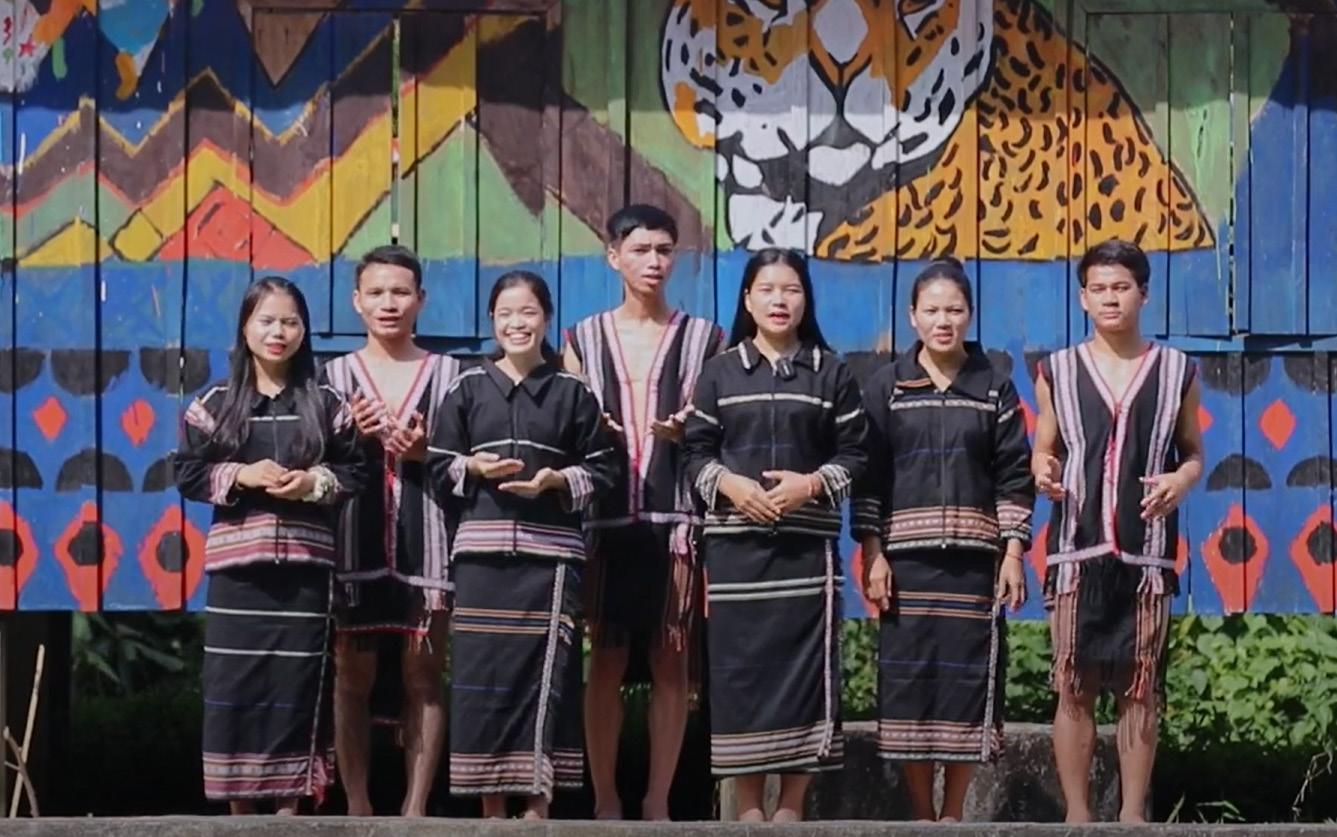
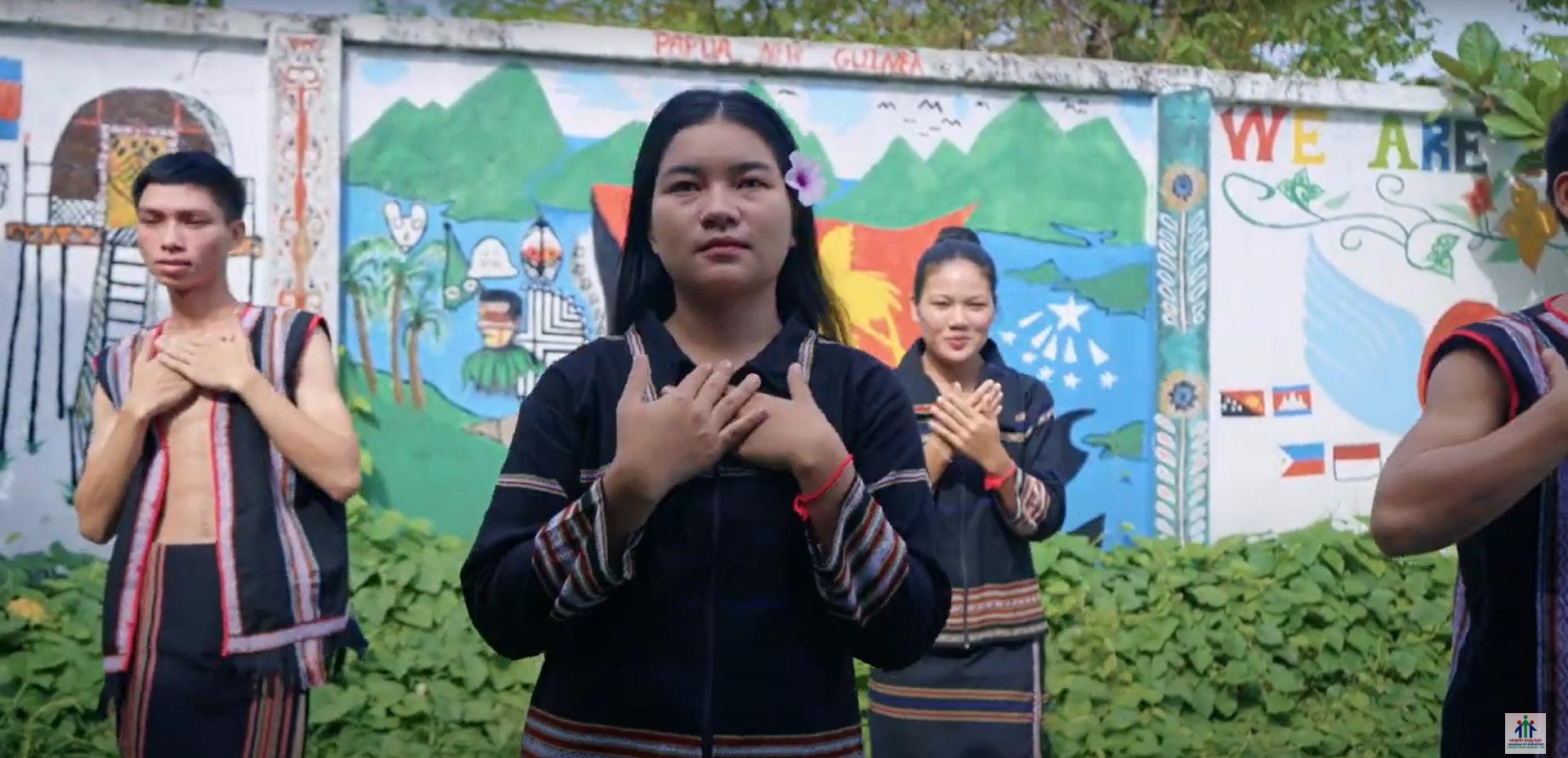
ពីួកឡេយងមាន៍អំំ�រគ��ចឡេពាះការ�ប្រុ�

We are grateful for the support and please keep your support so more Indigenous children and youth can enjoy education for a better word and protection of Mother Earth.
Pinilo Translated is (Thank you). For all those benefactors, volunteers, teachers, children and youth who were involved at the Don Bosco Kep Project and the Brother Sun Program.




